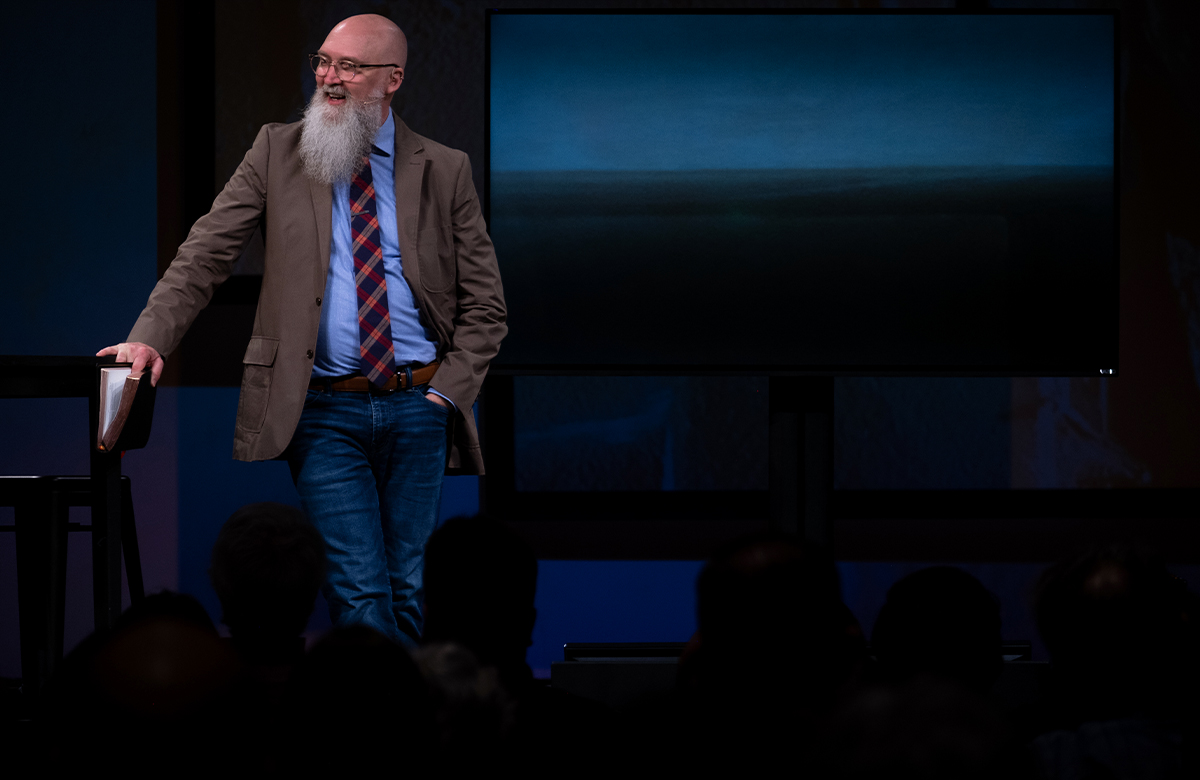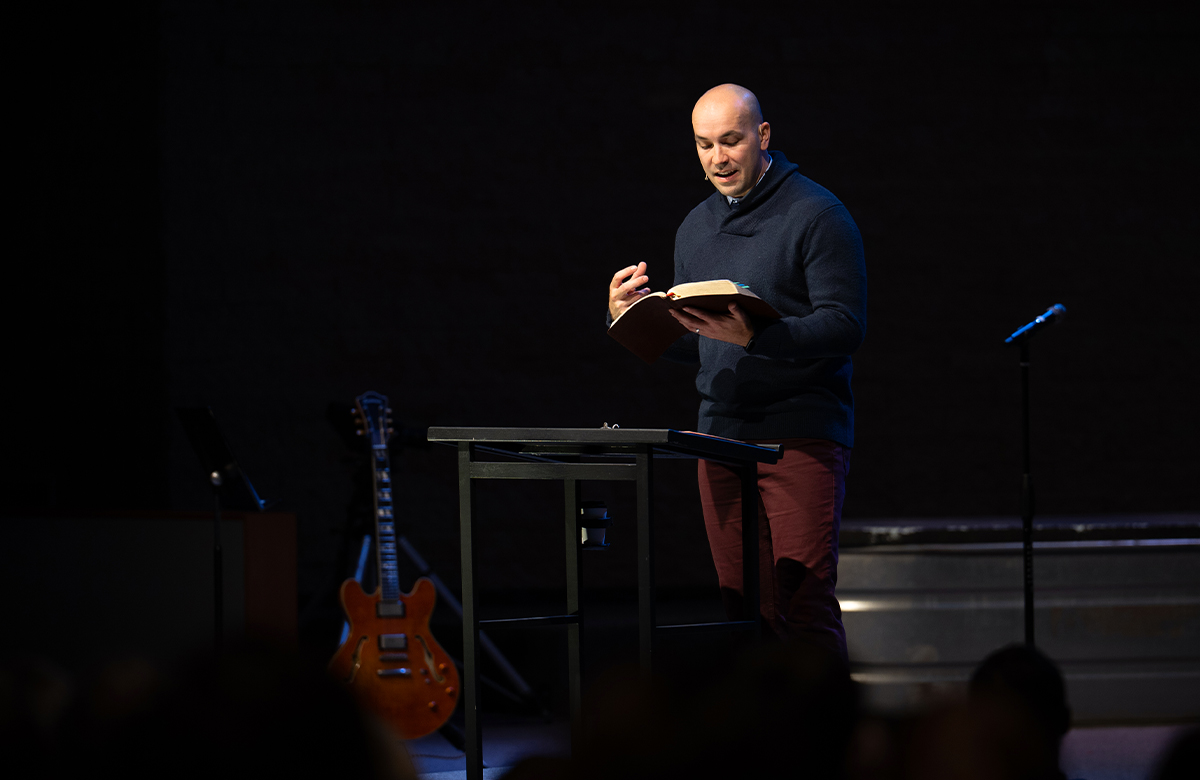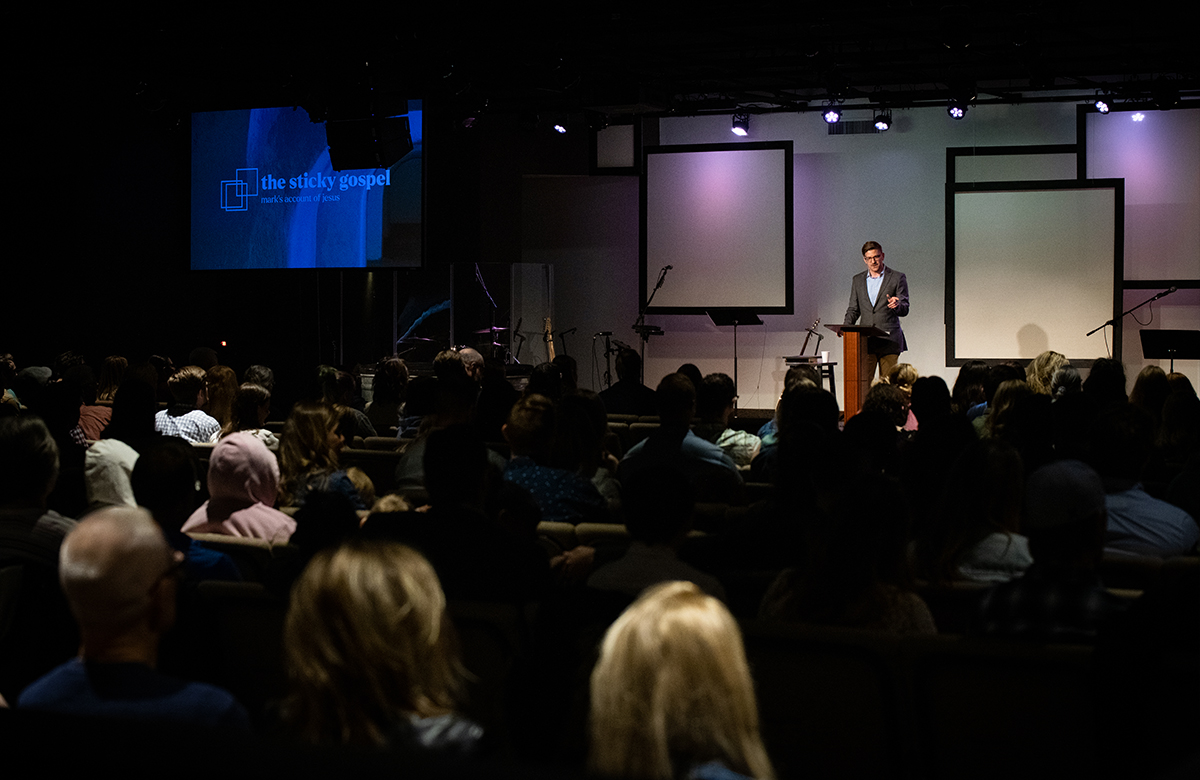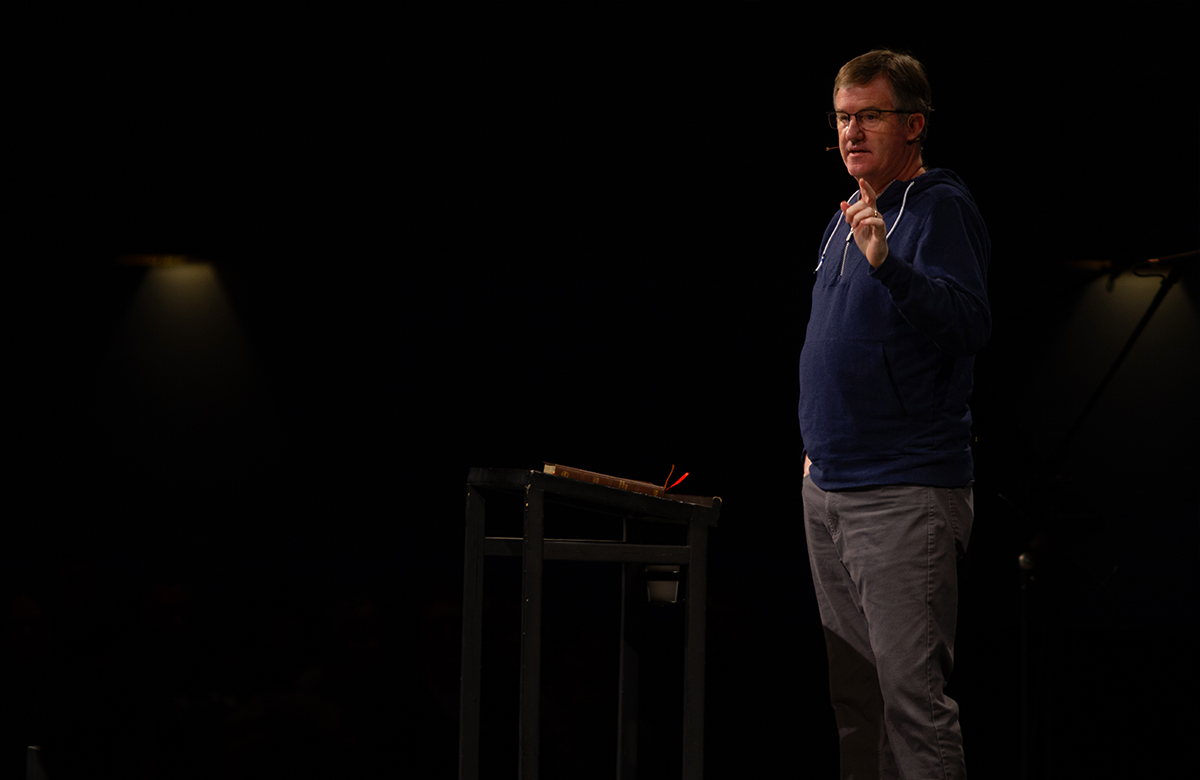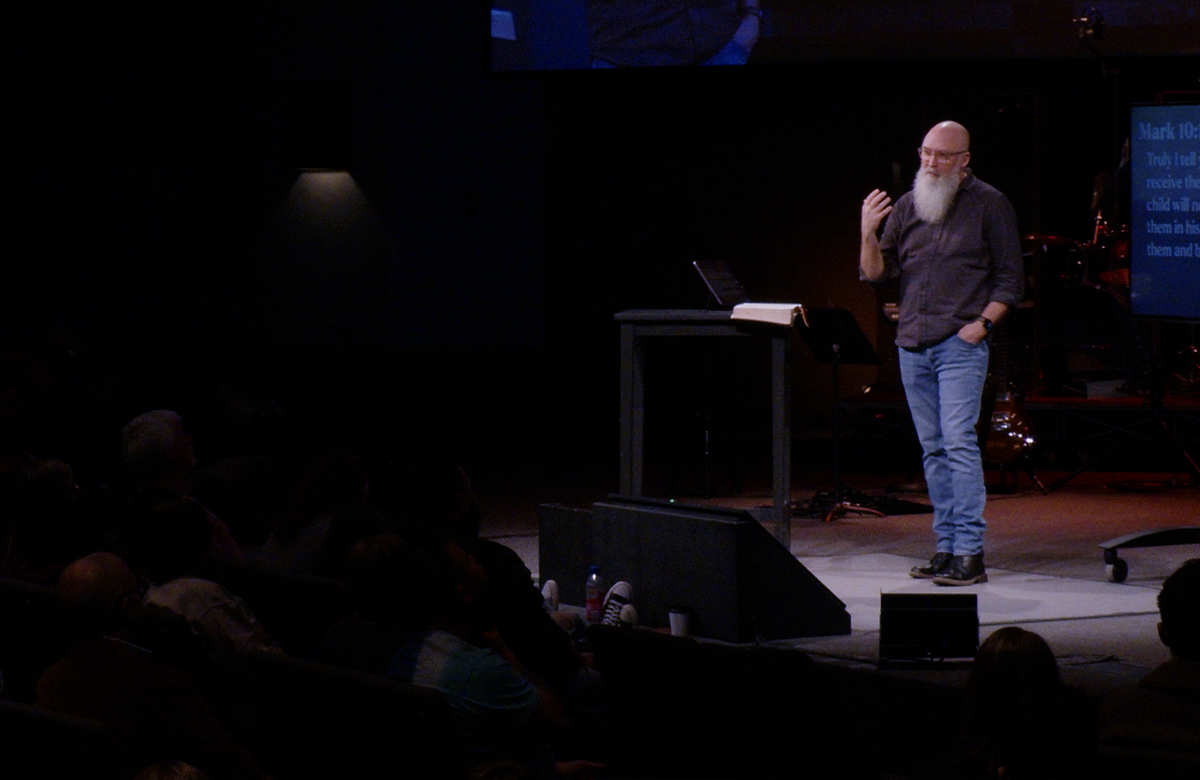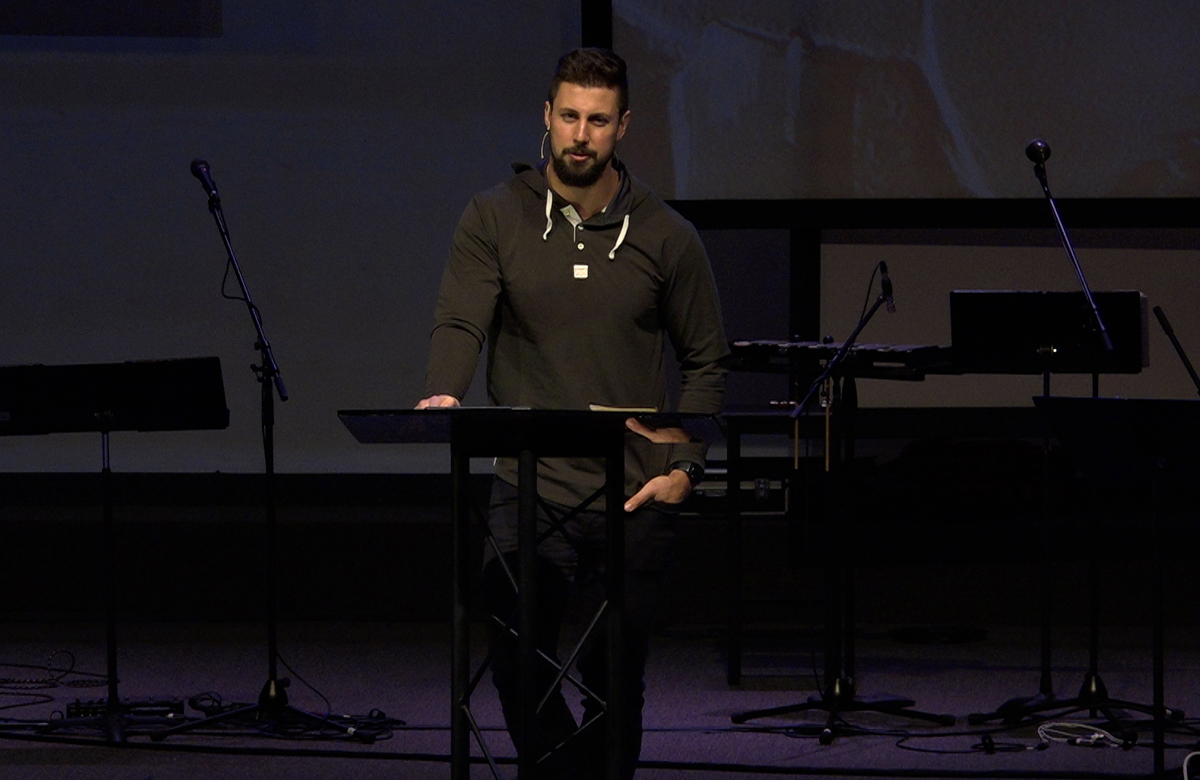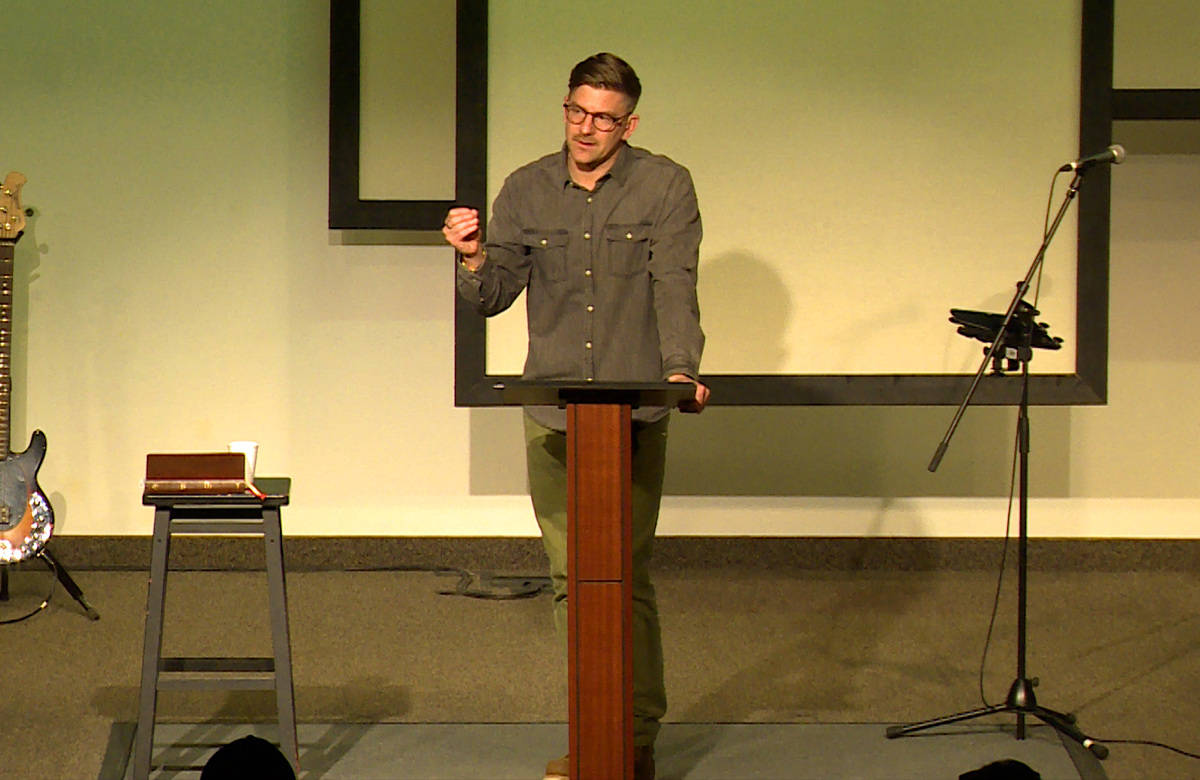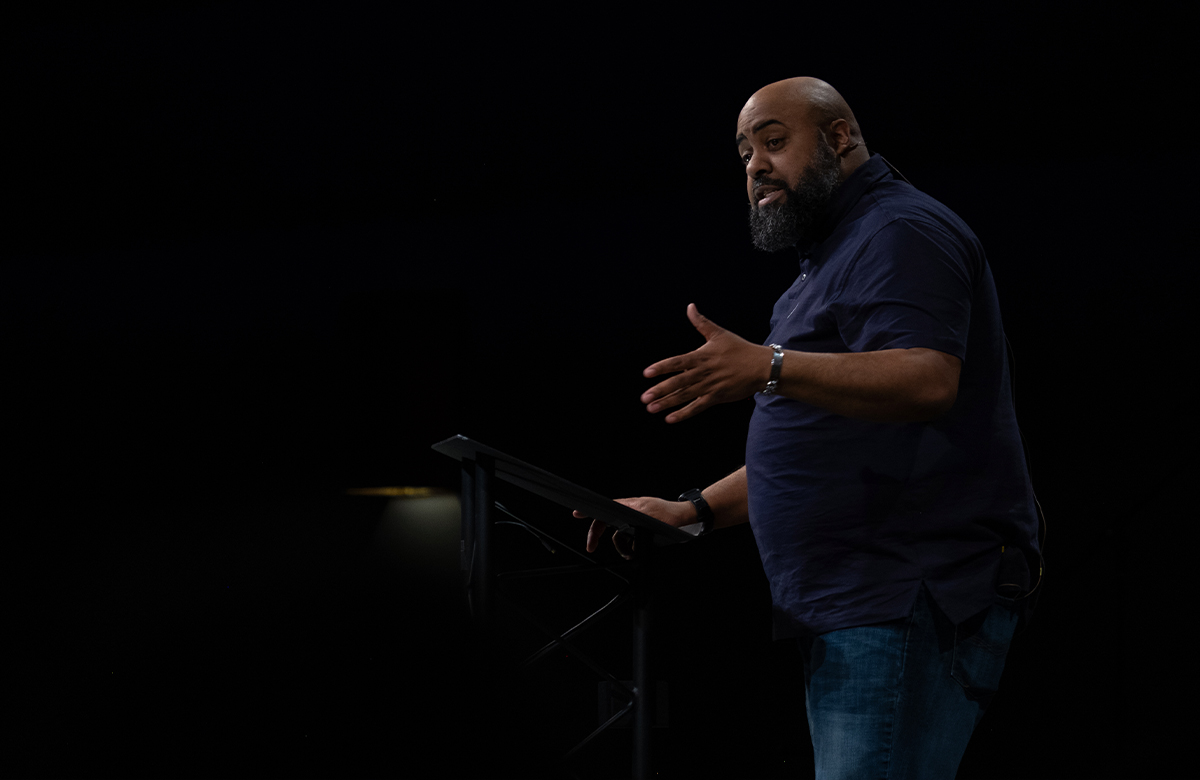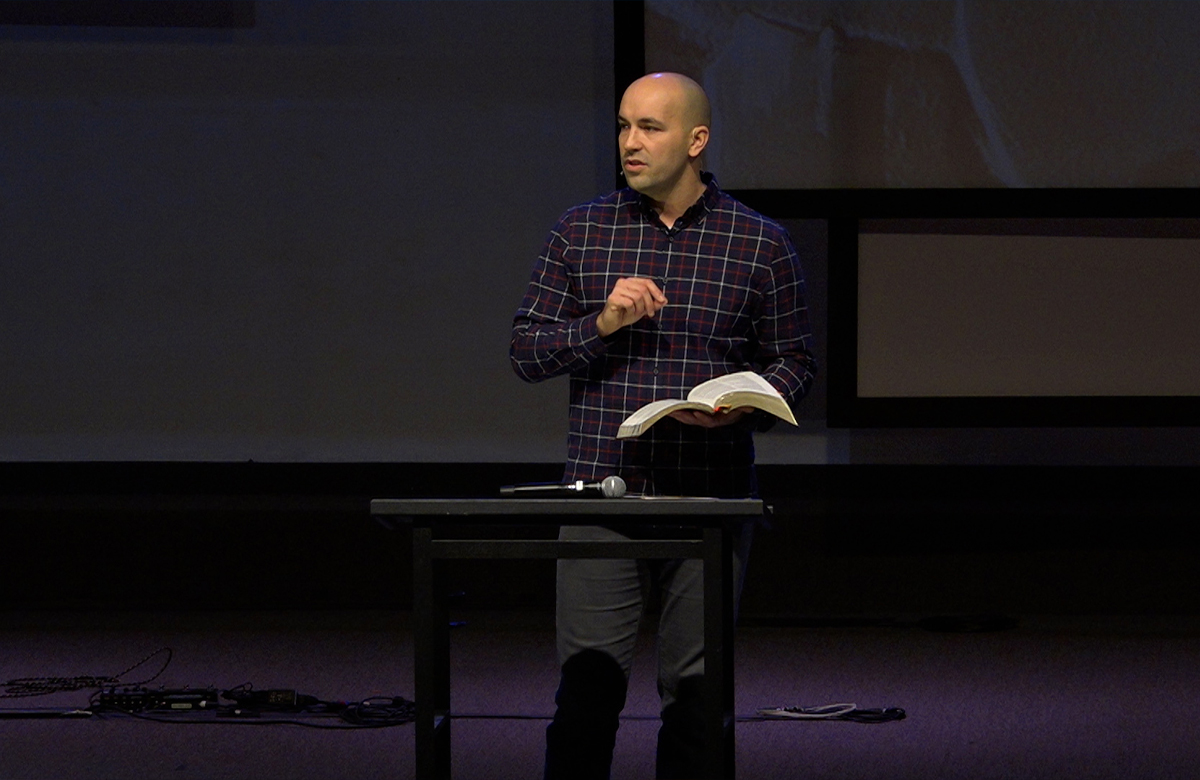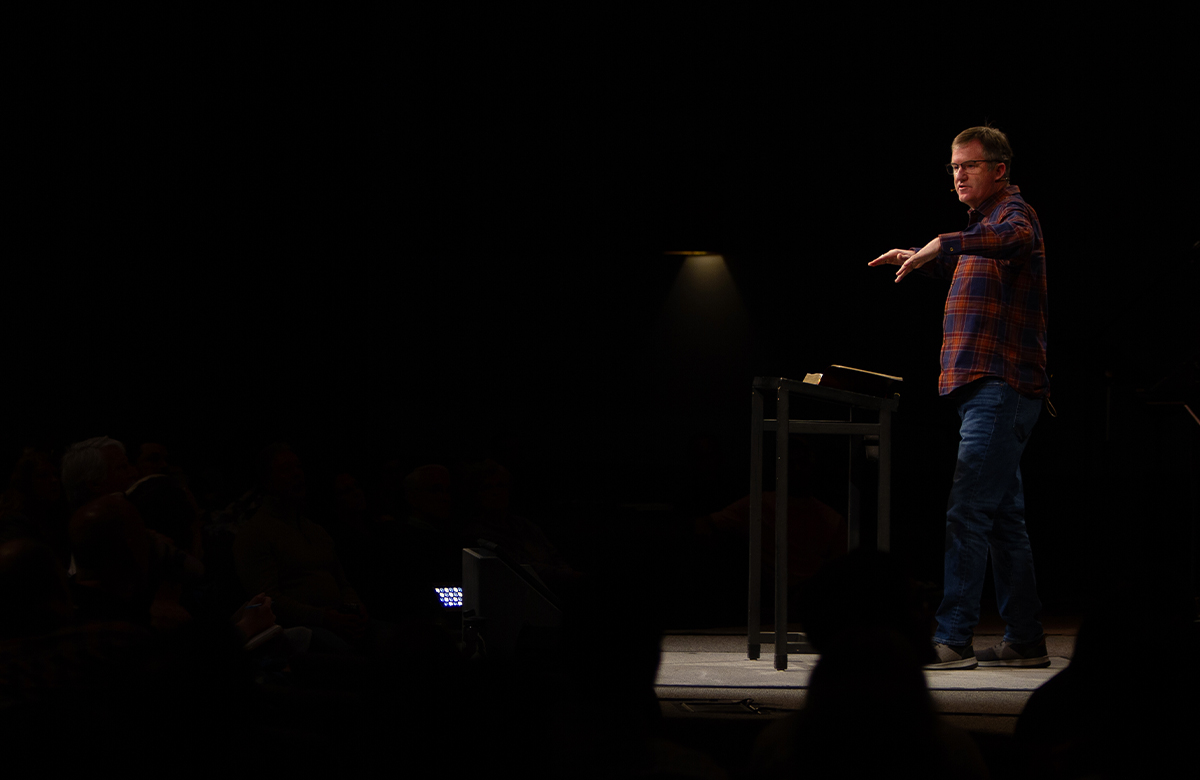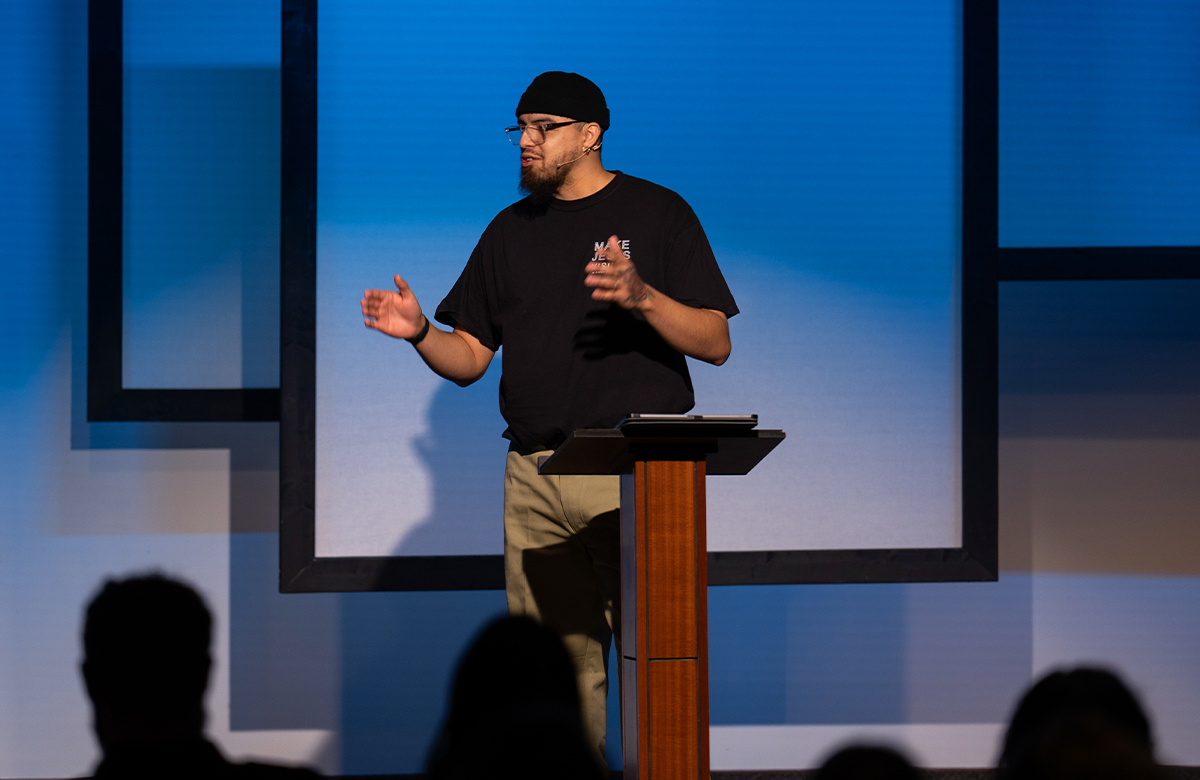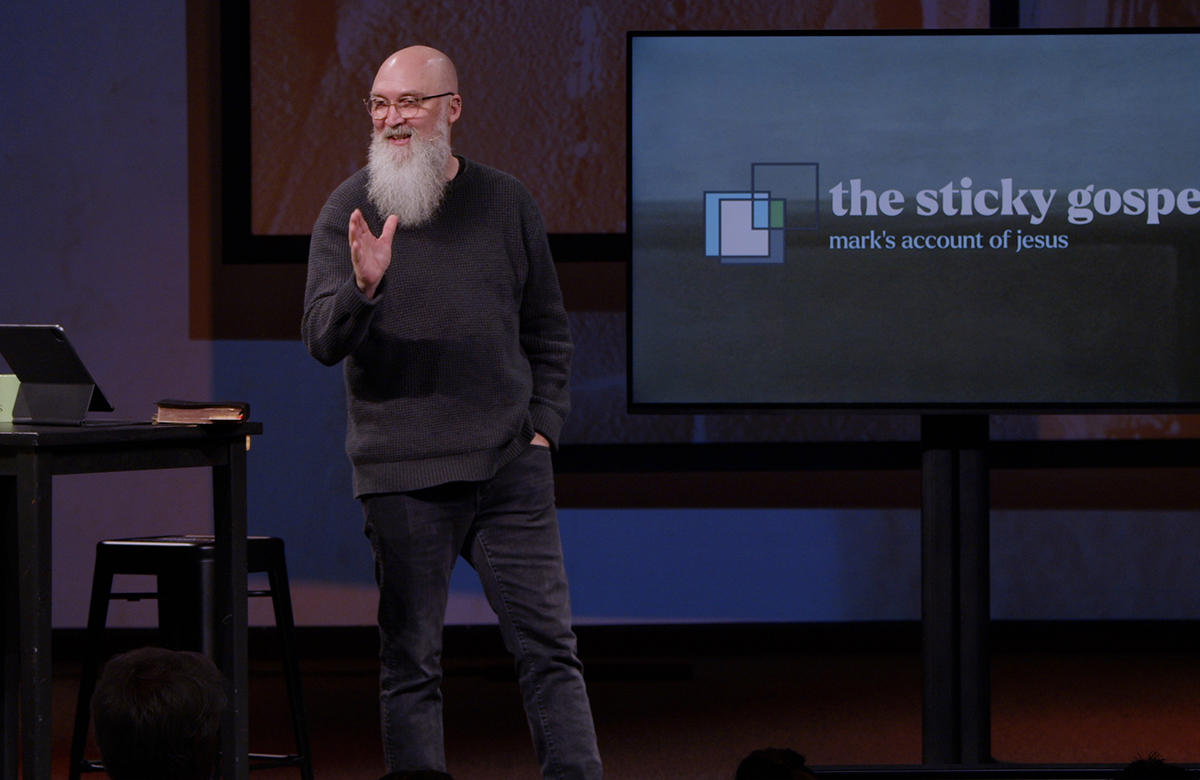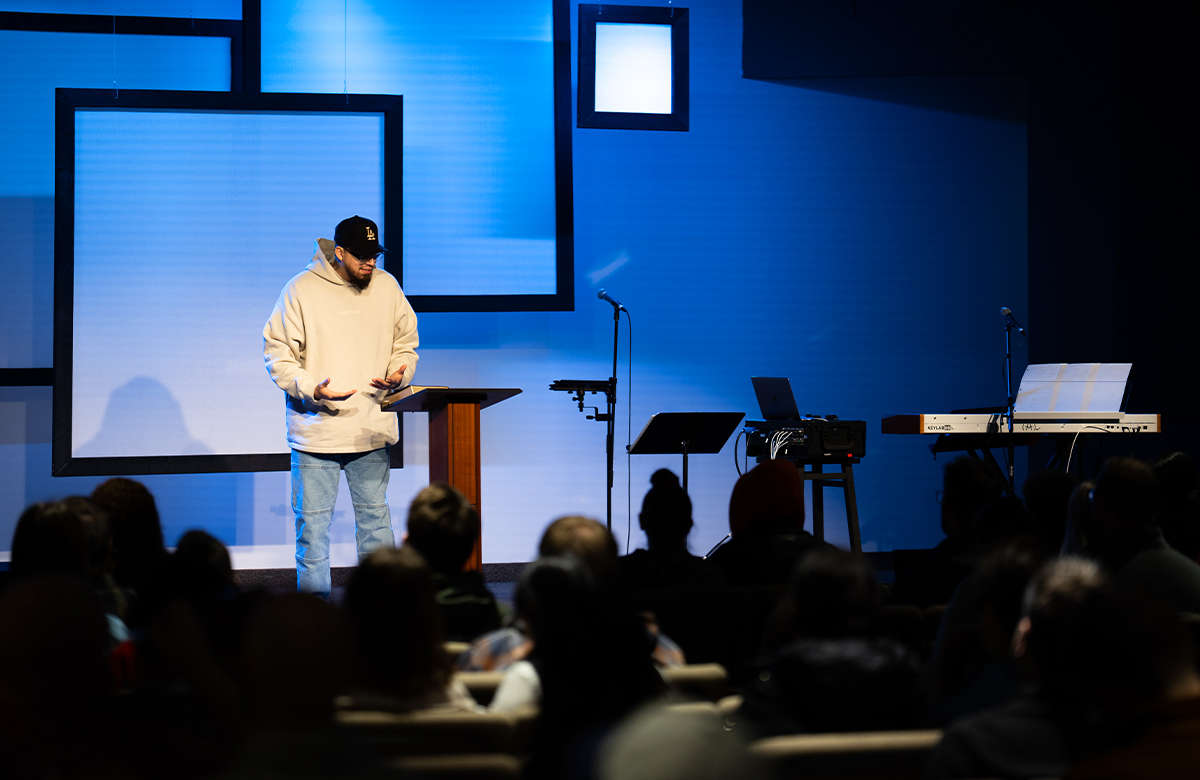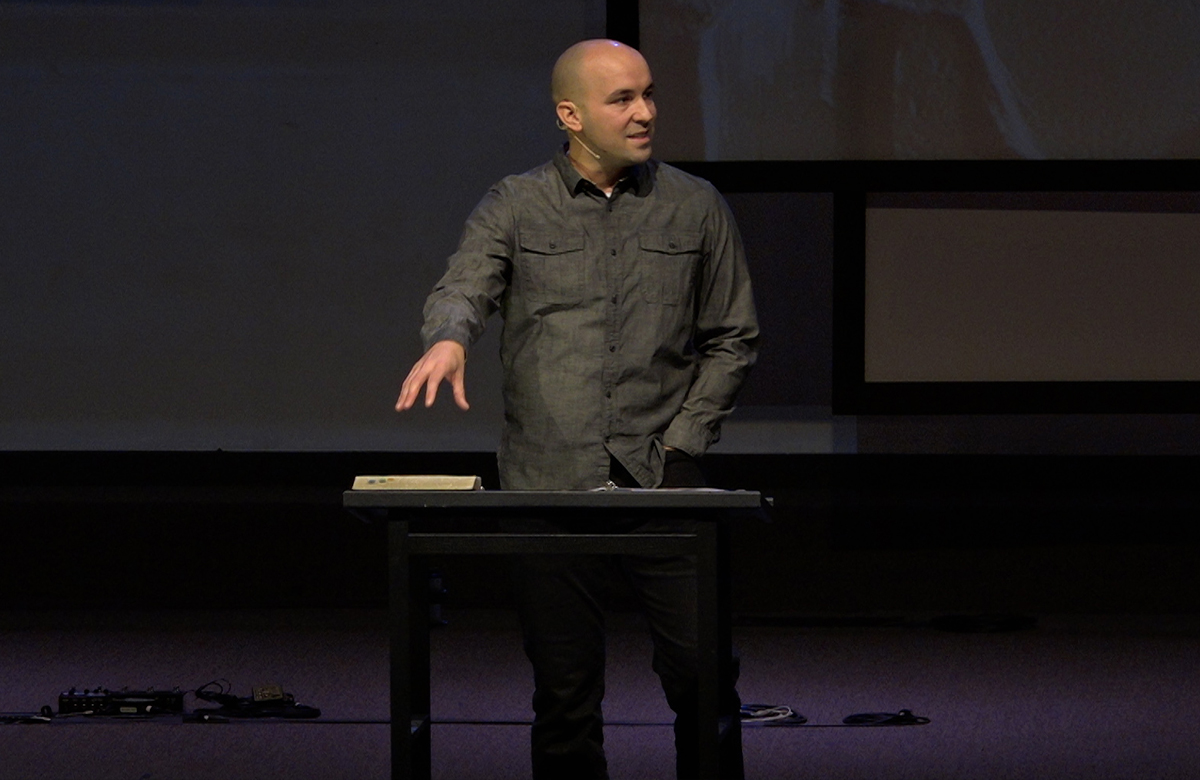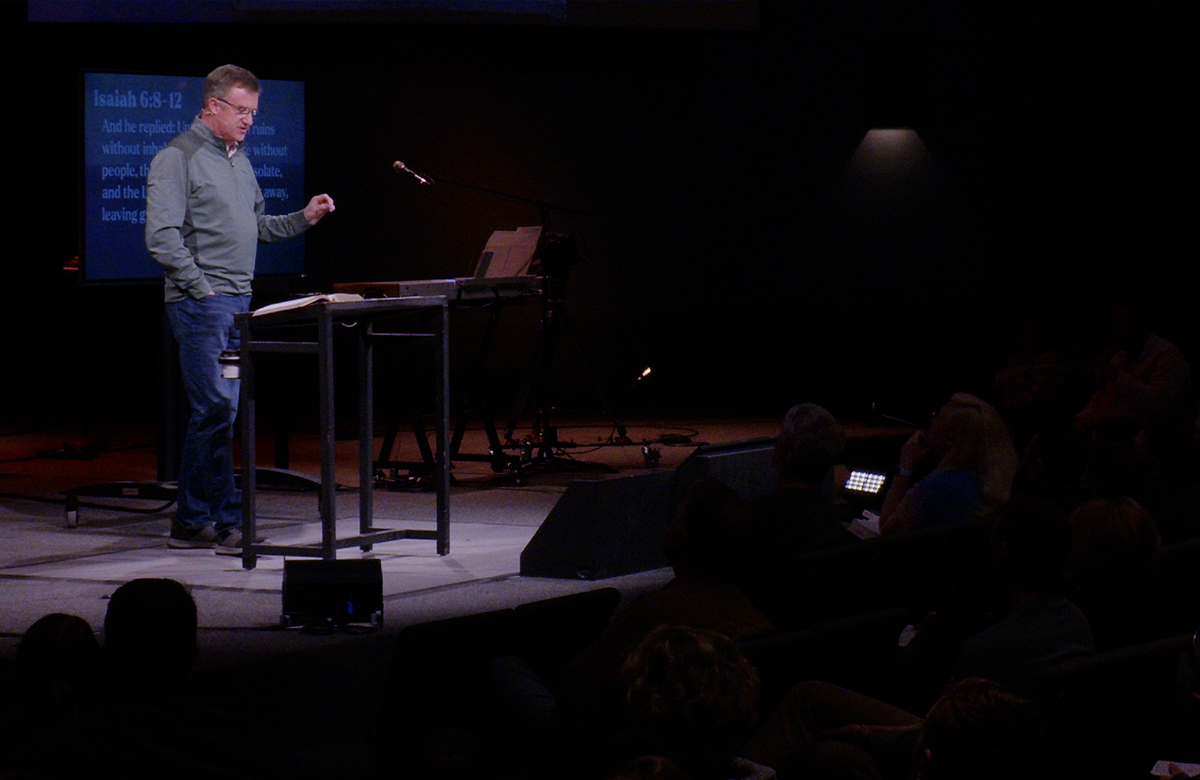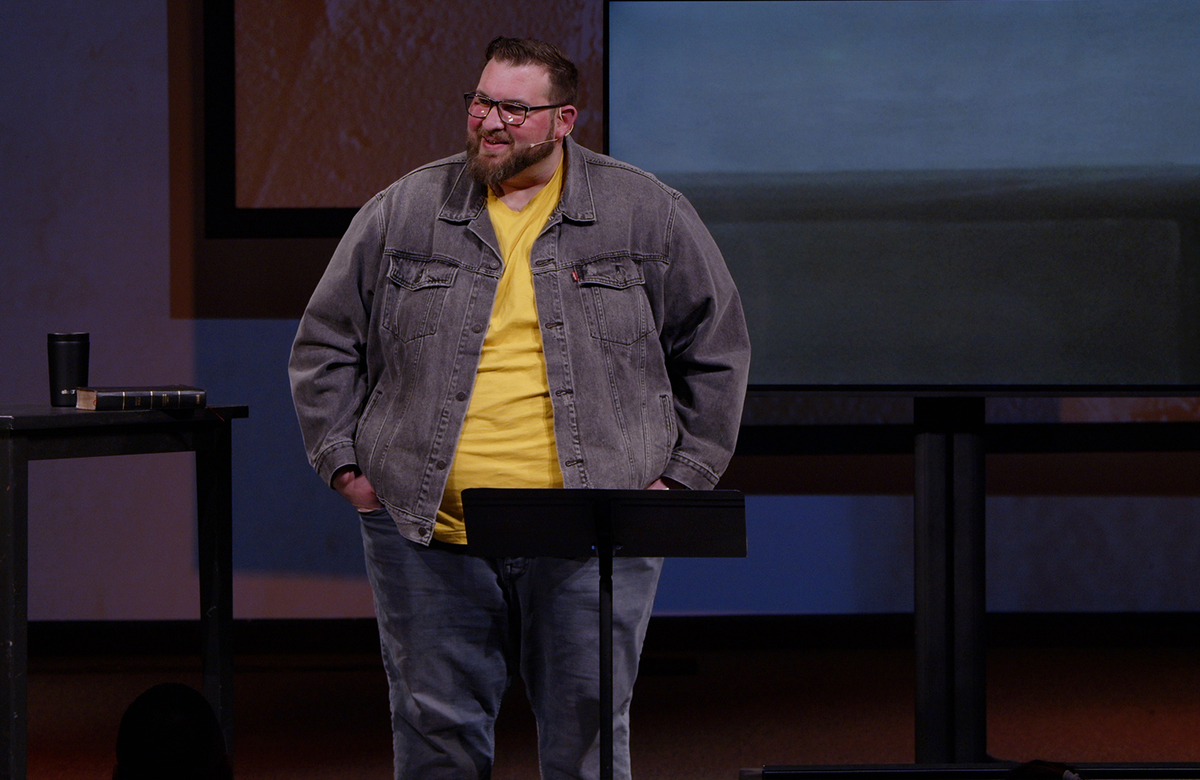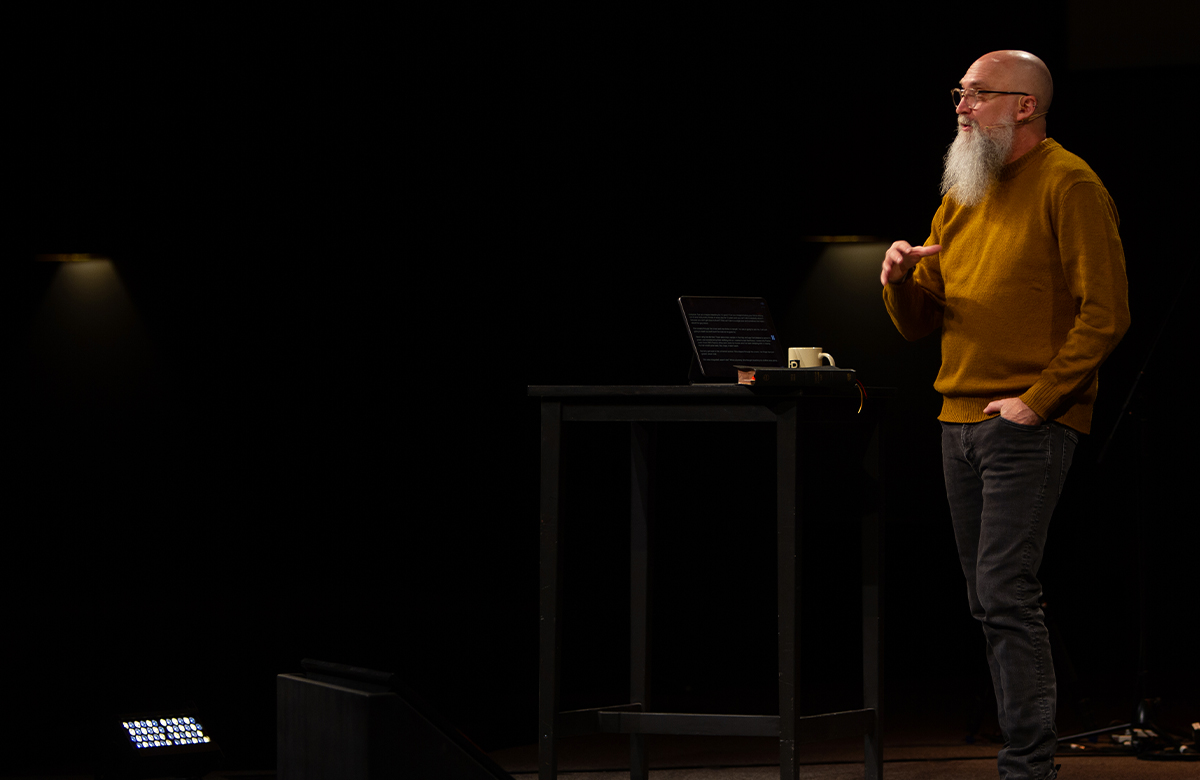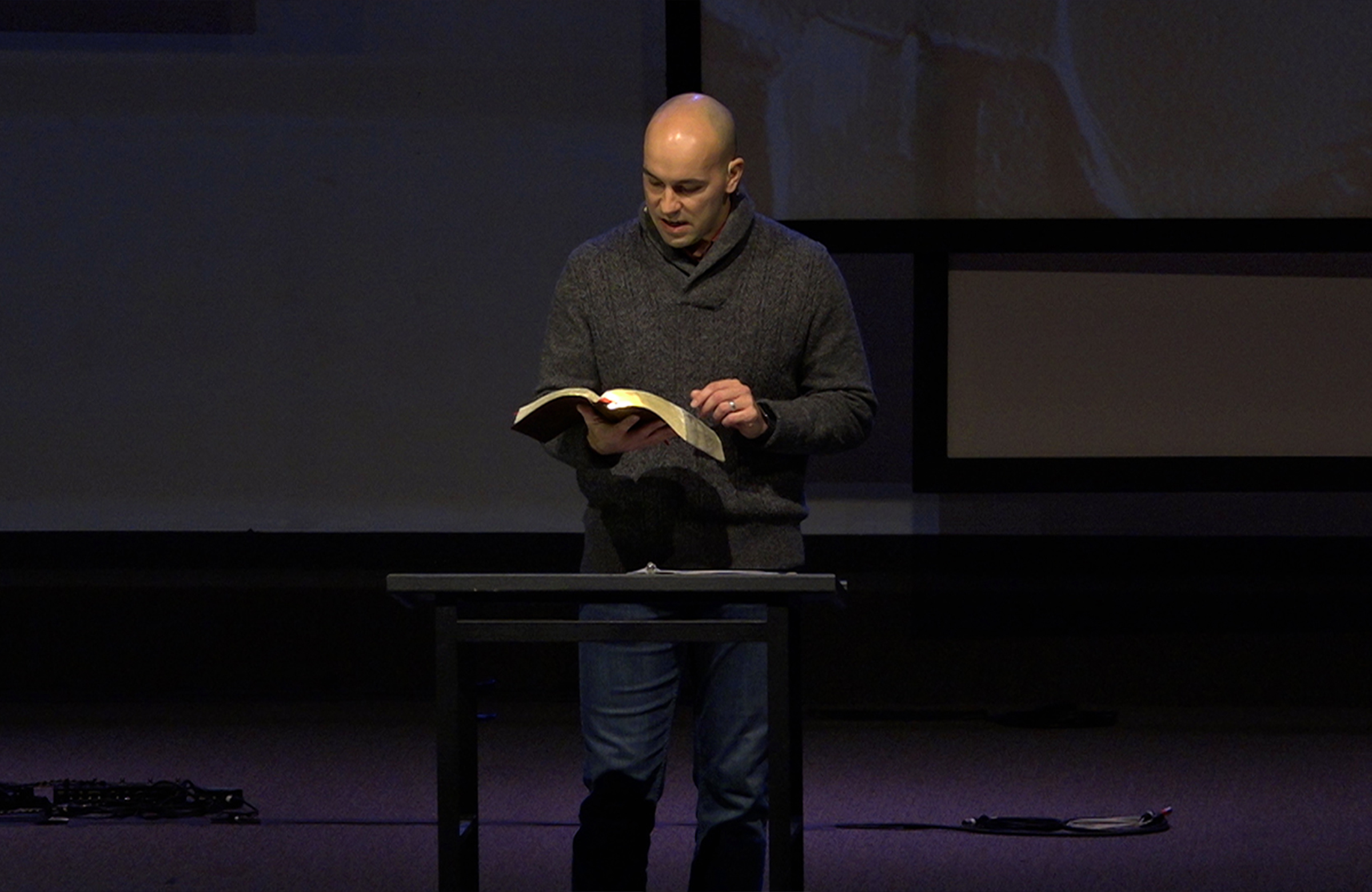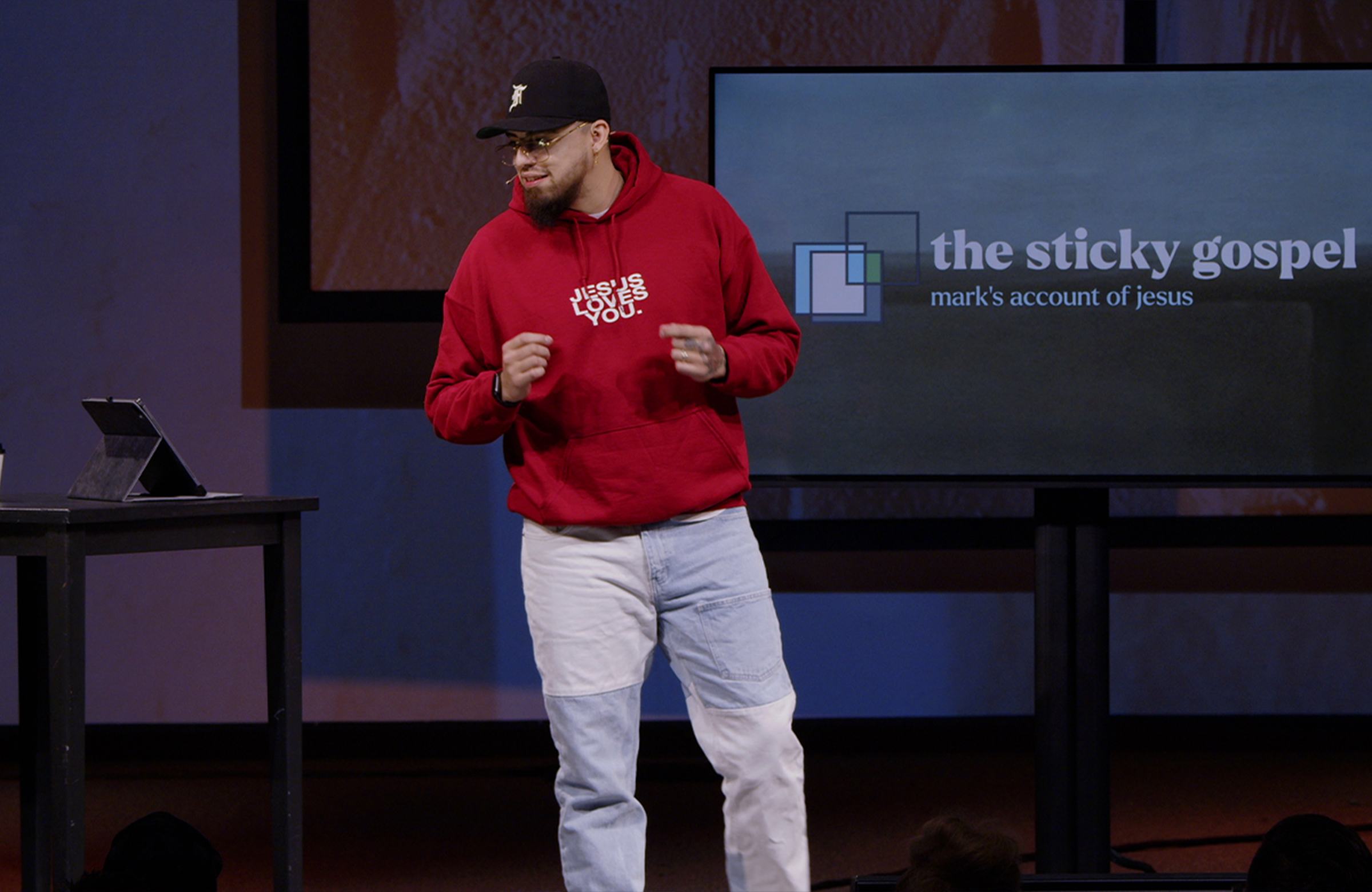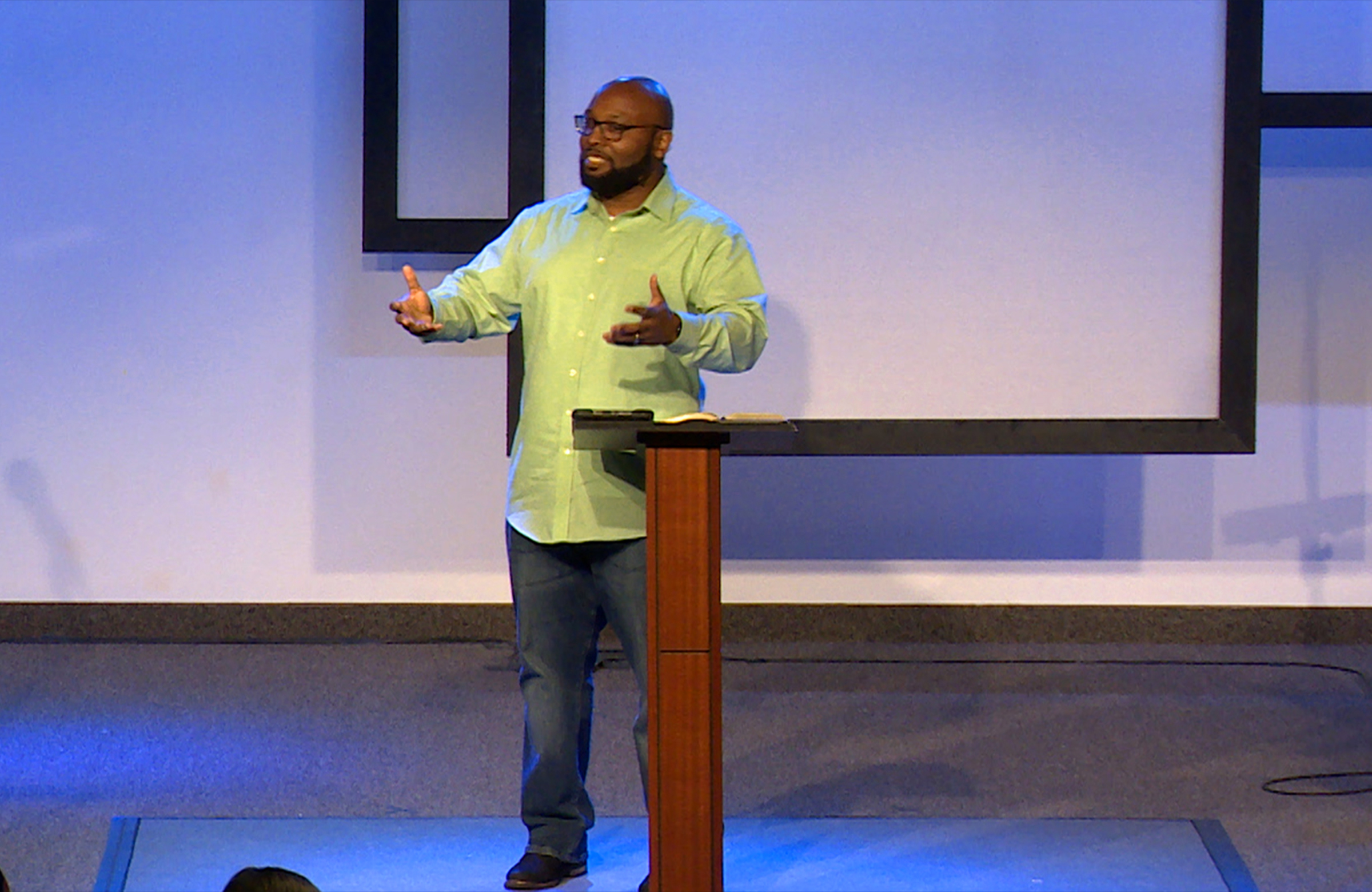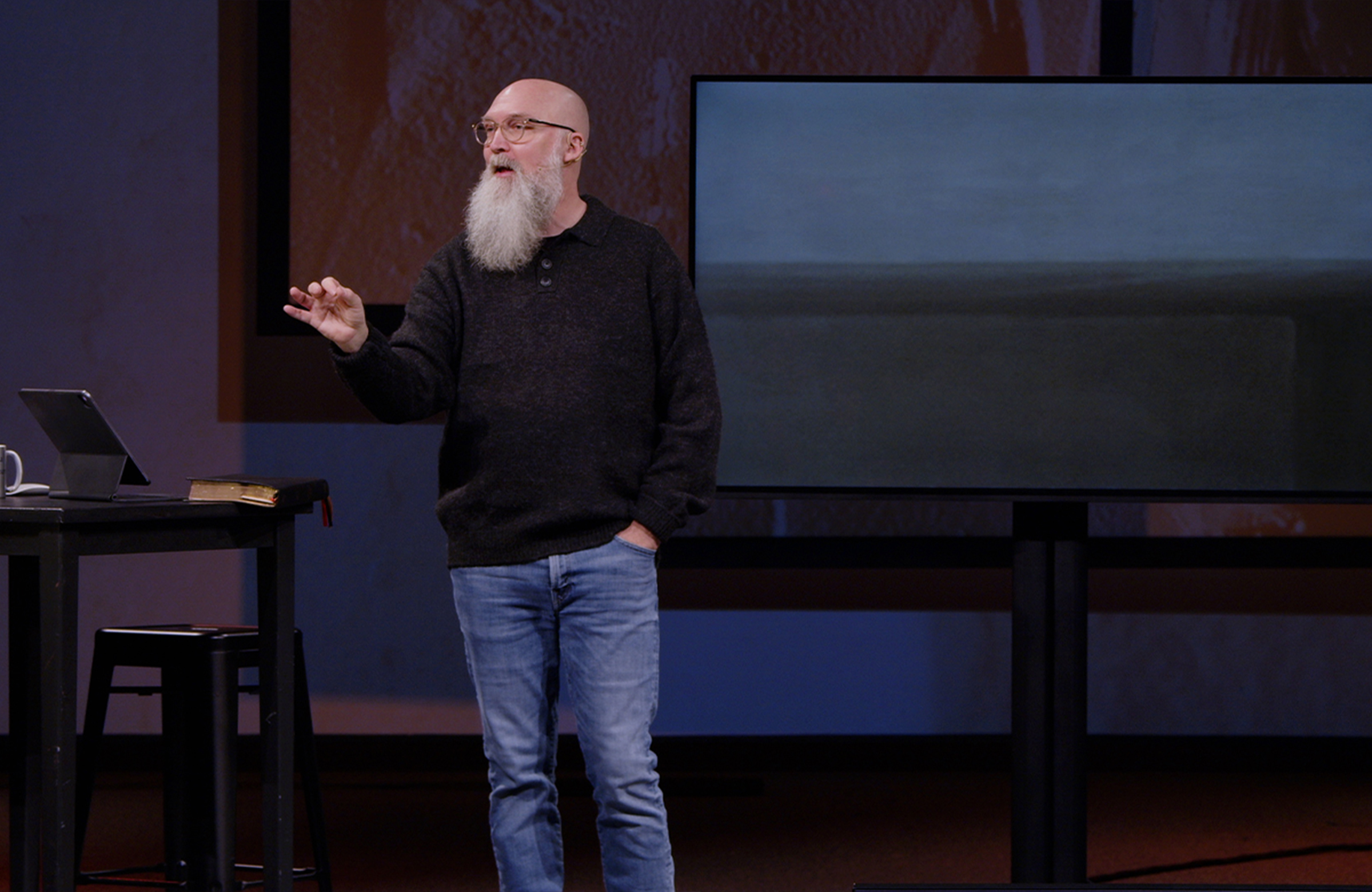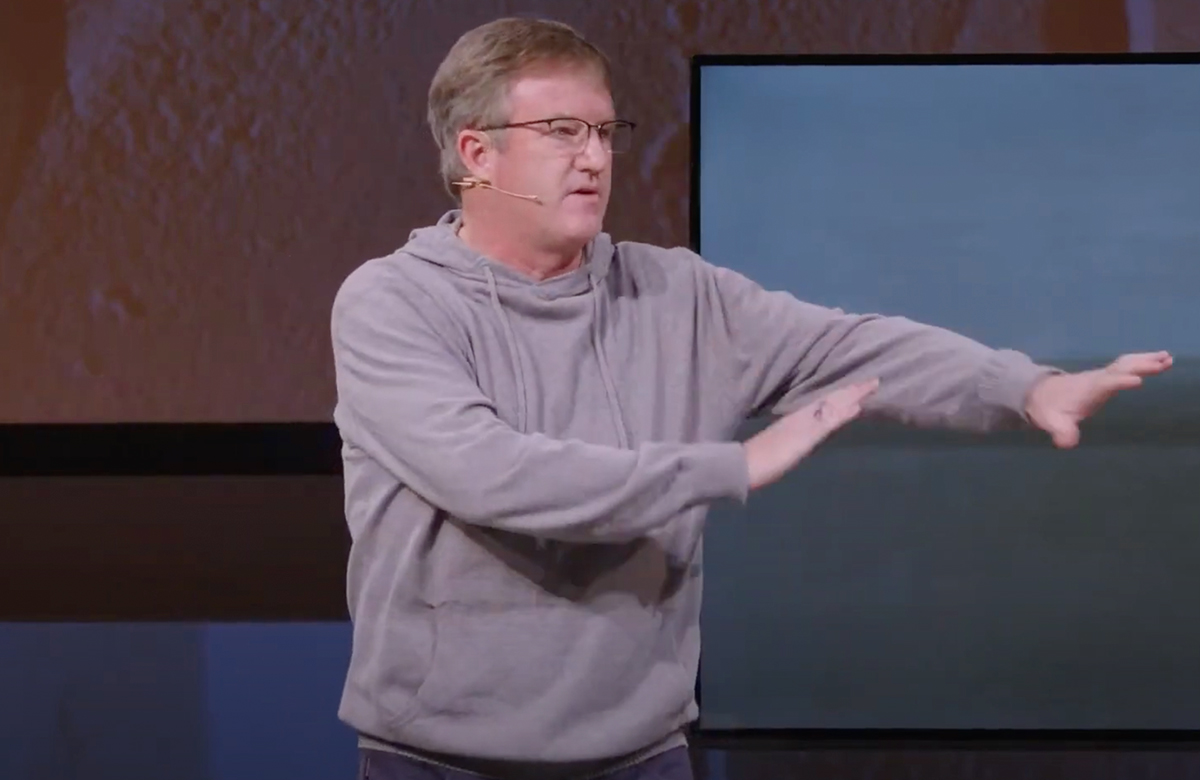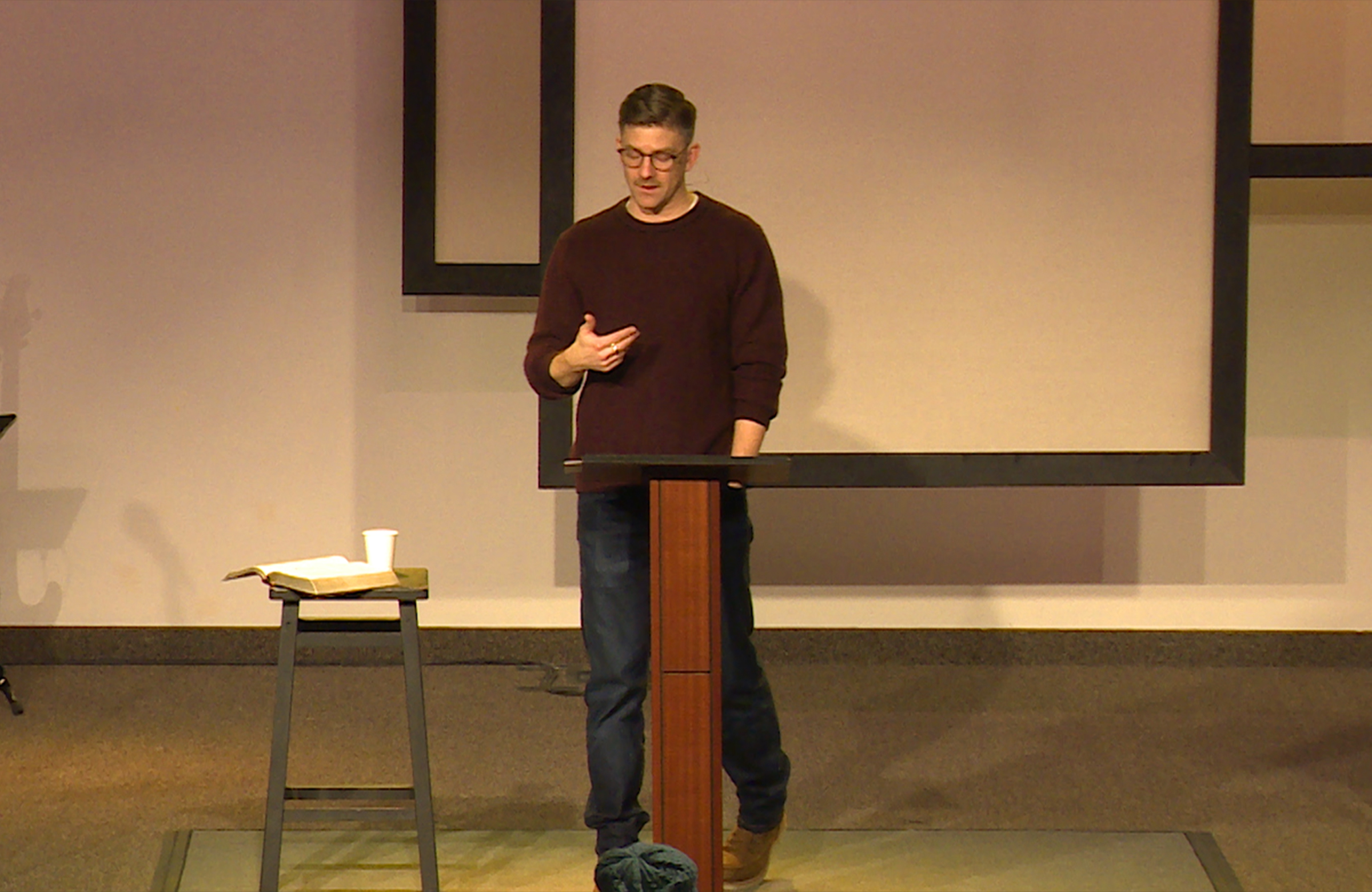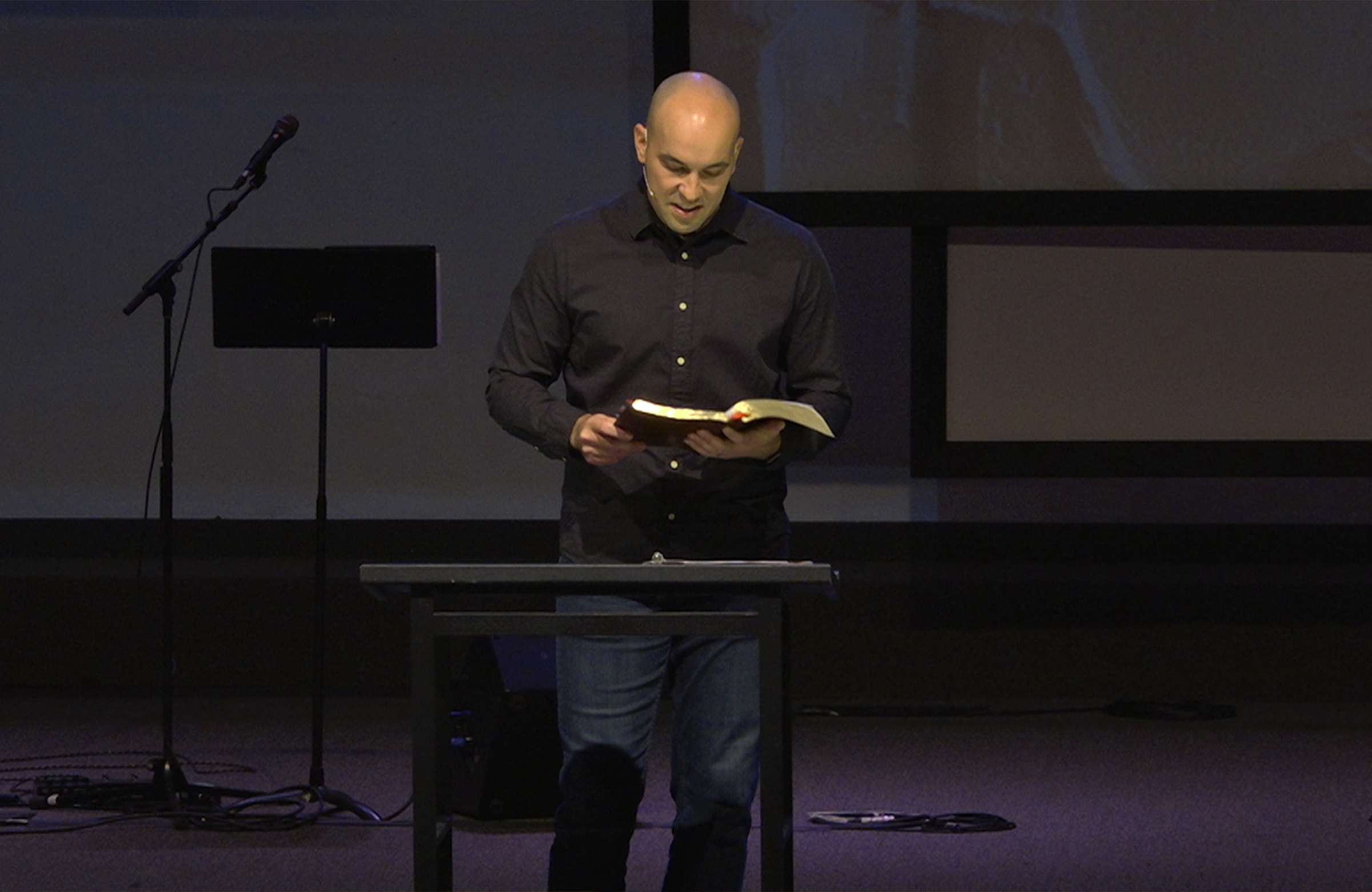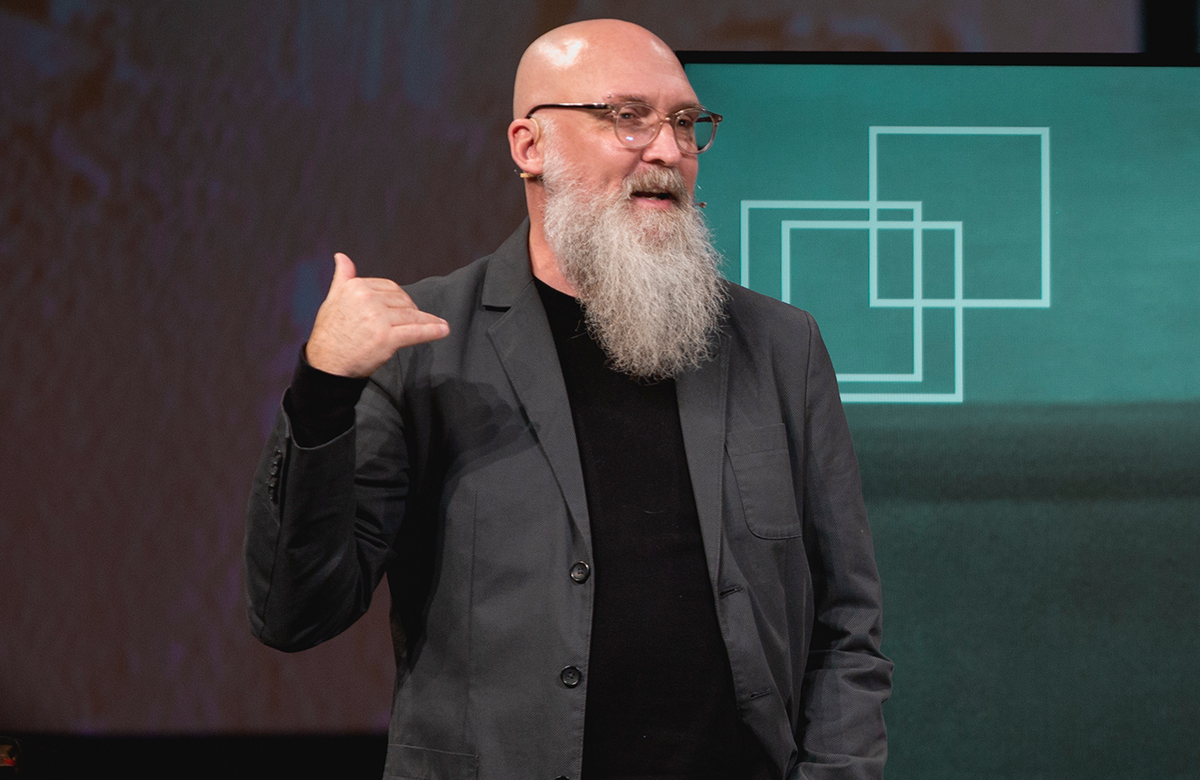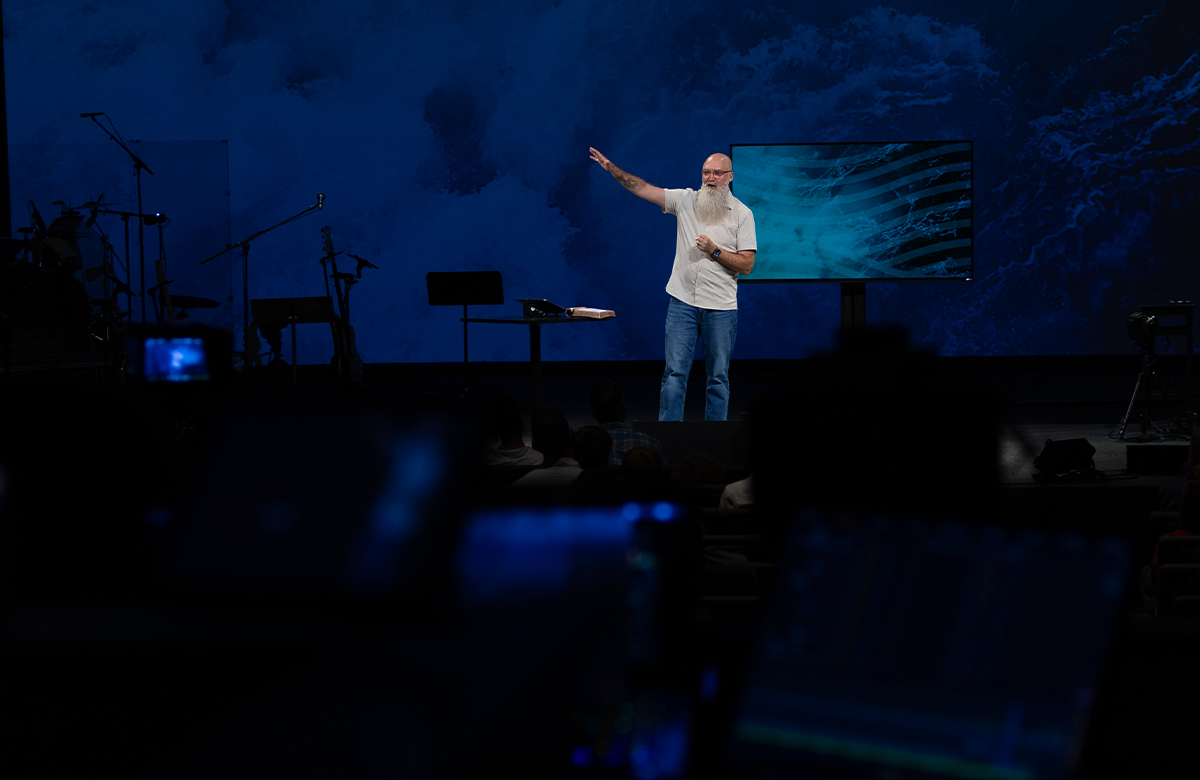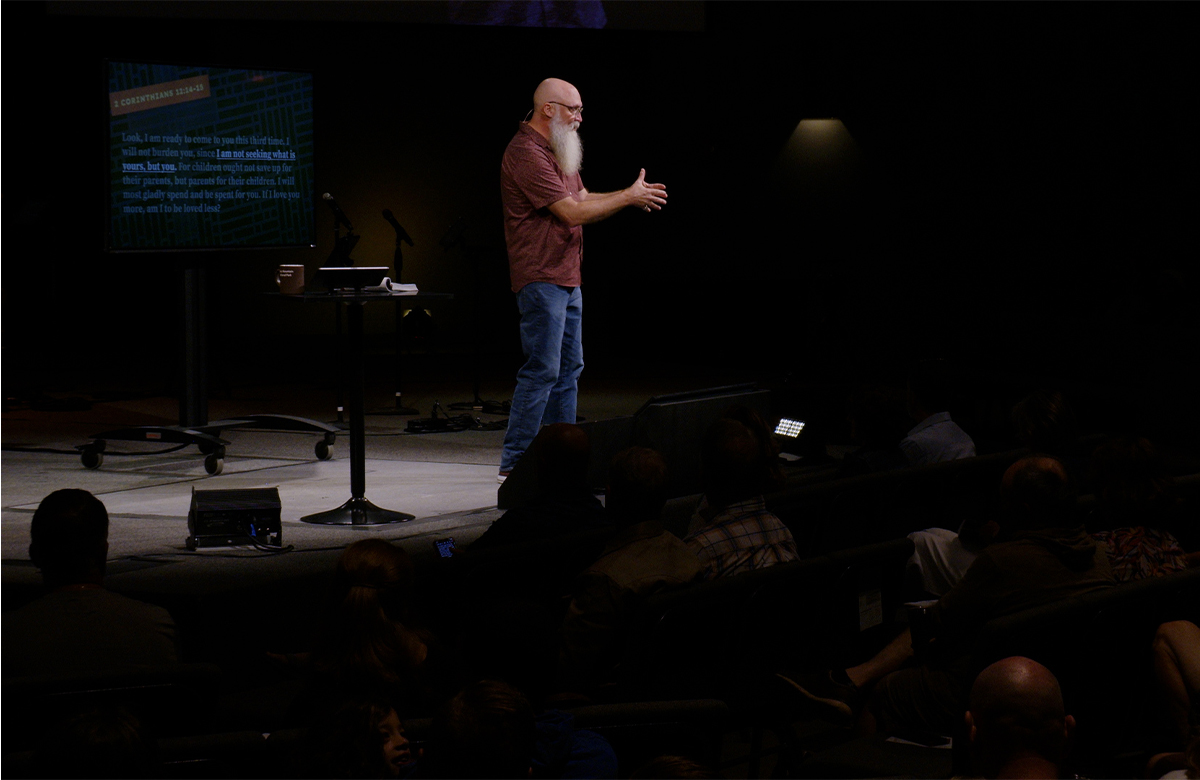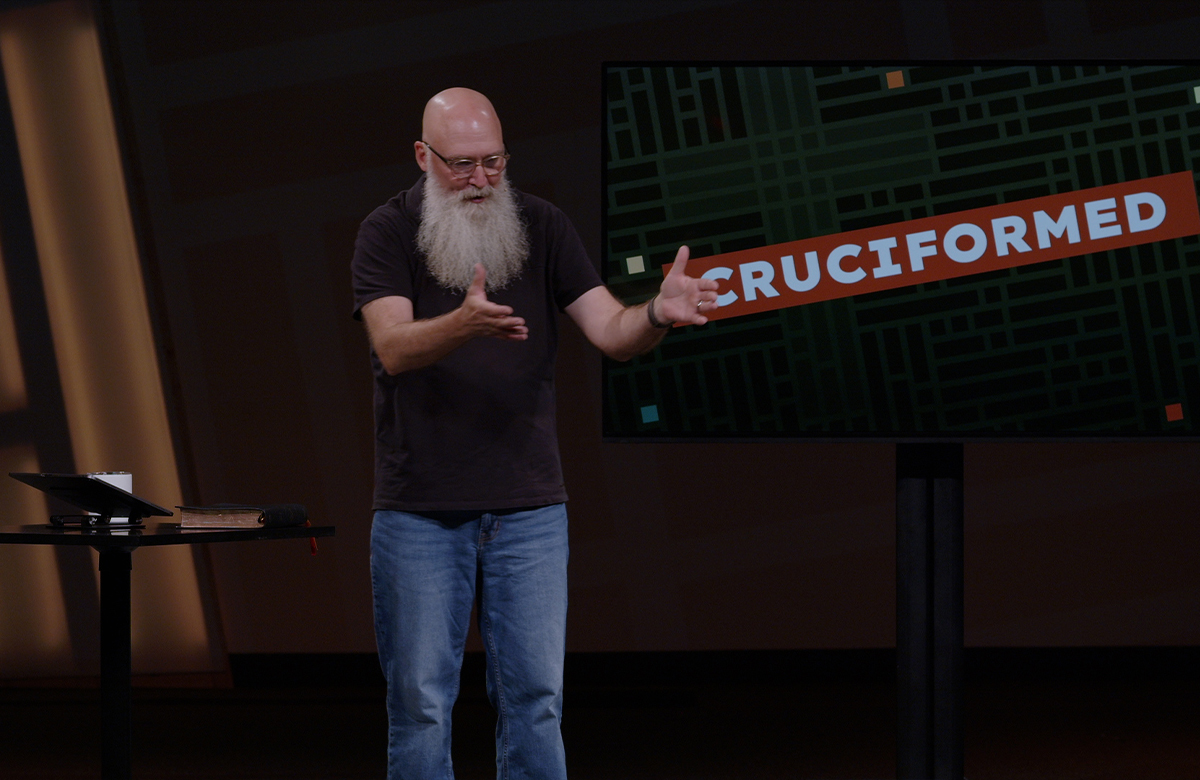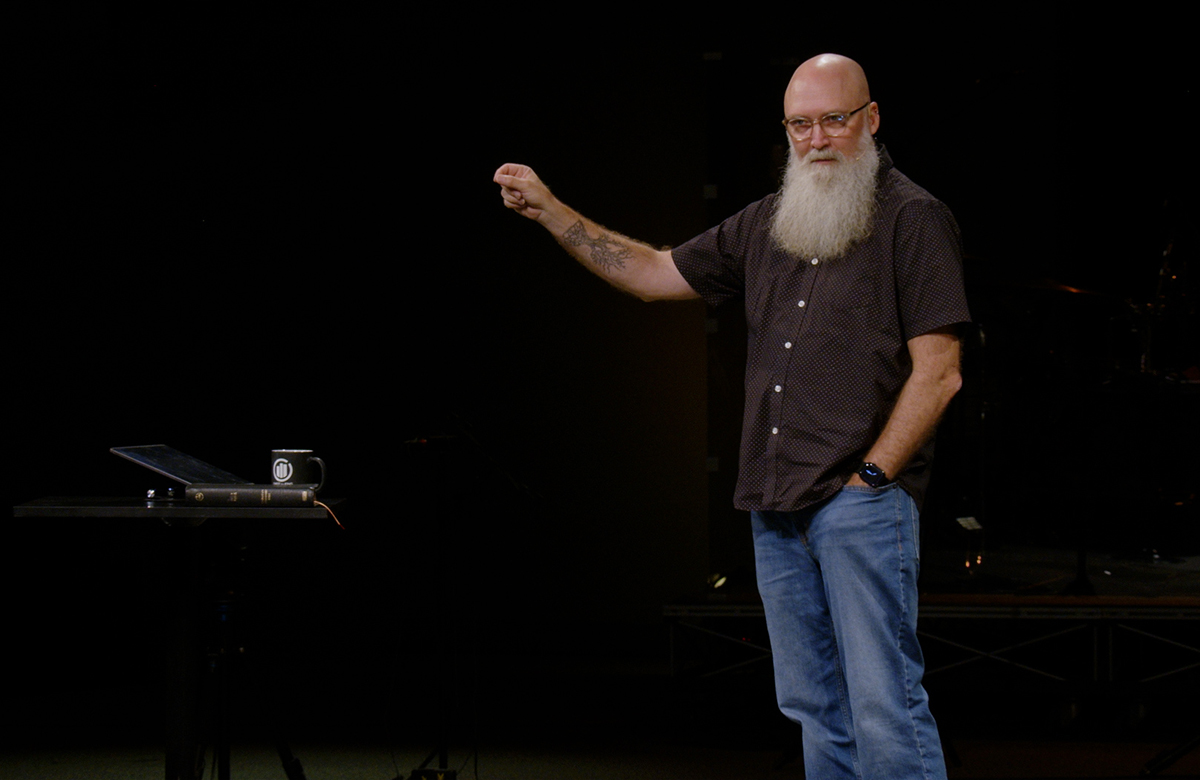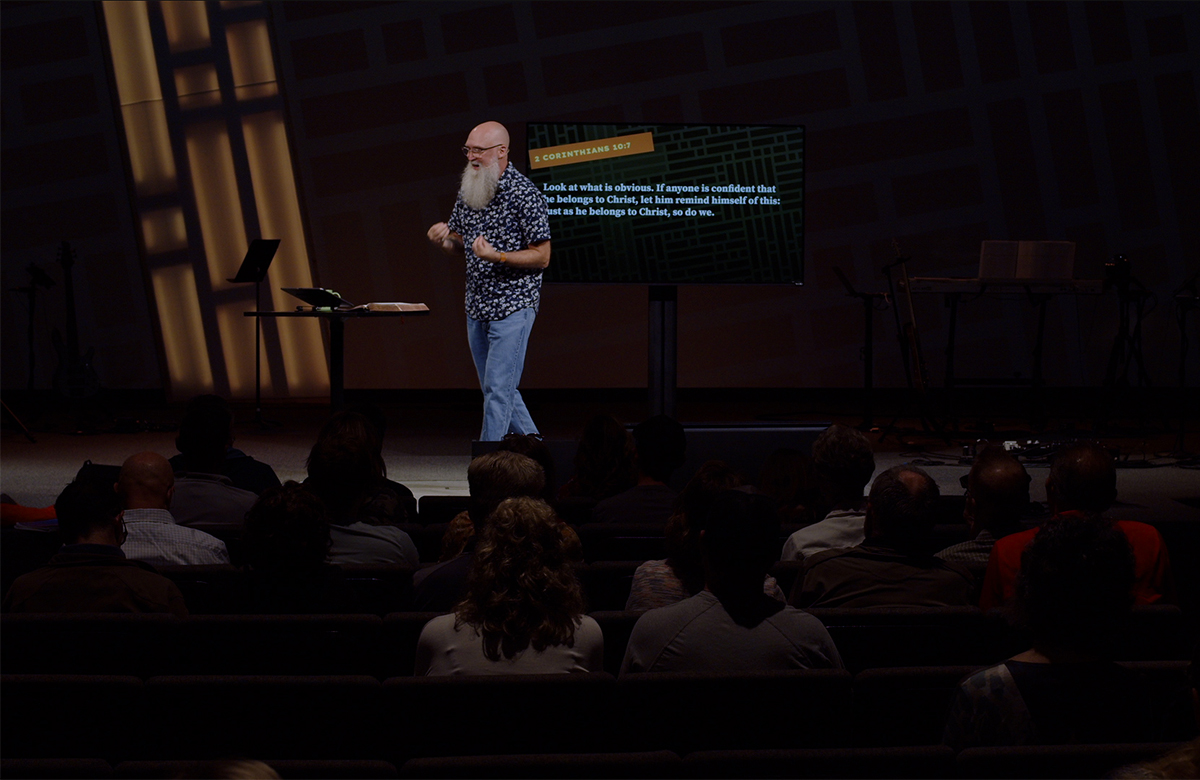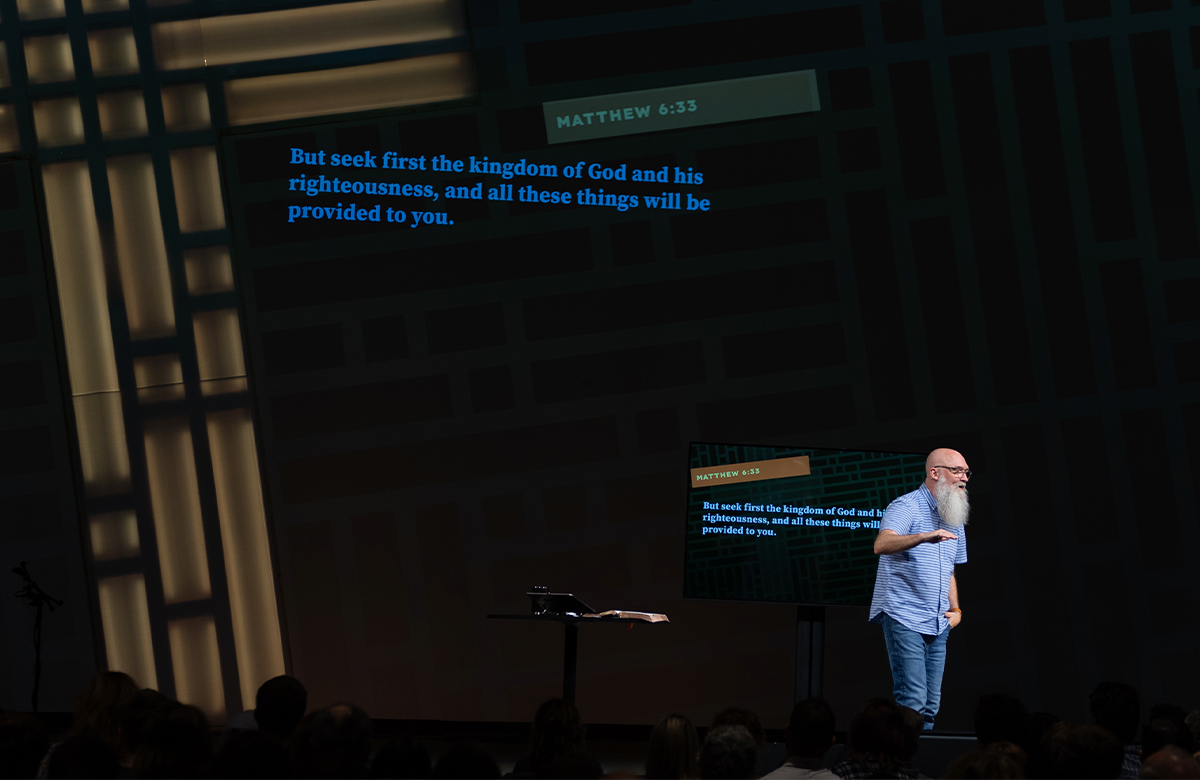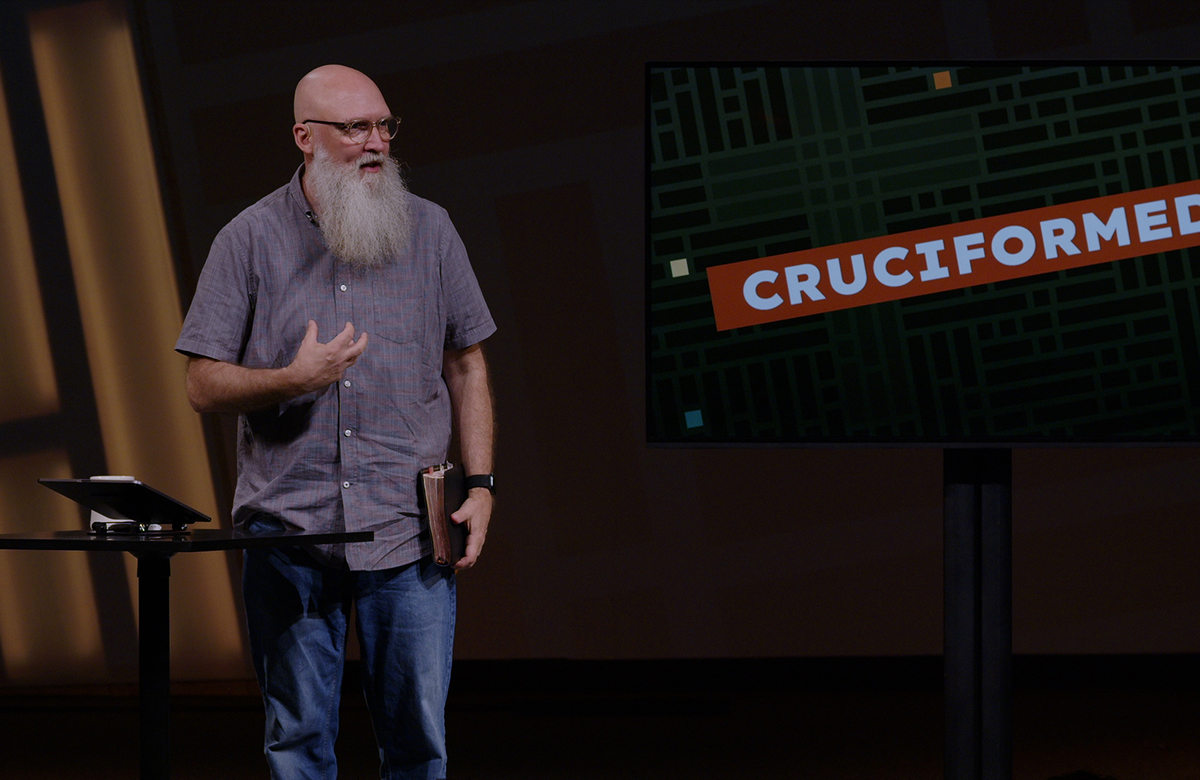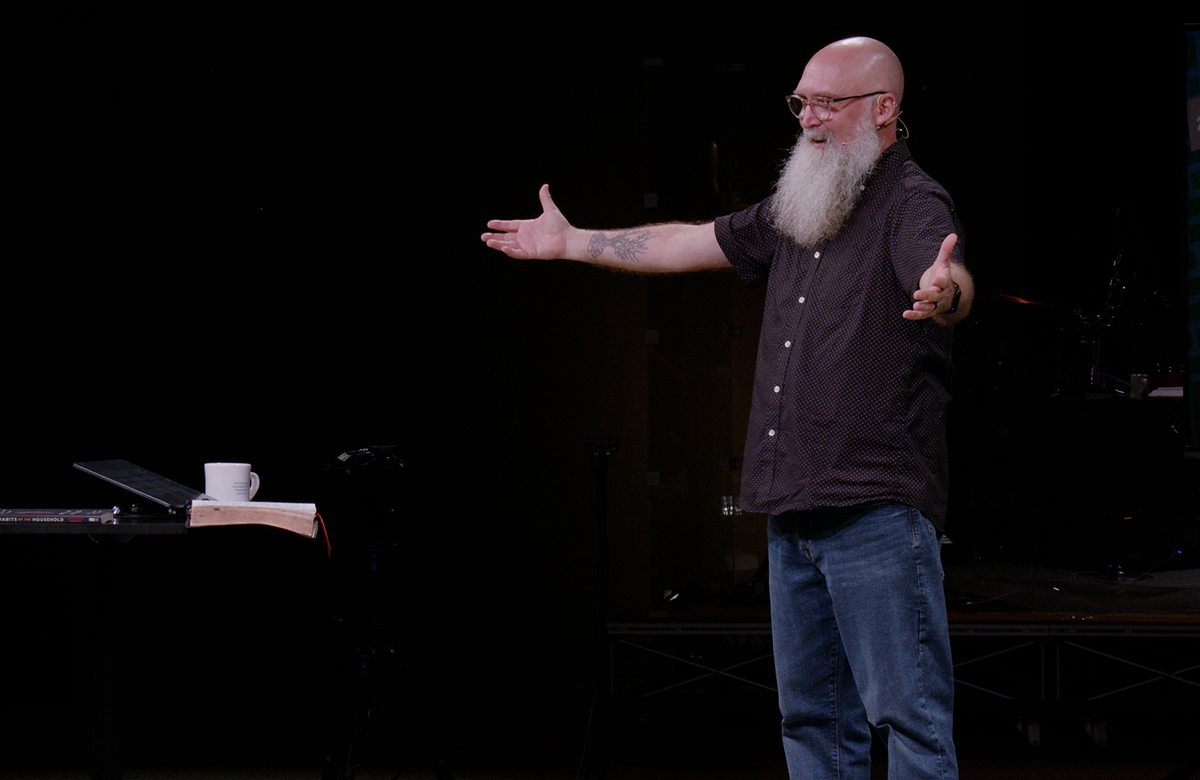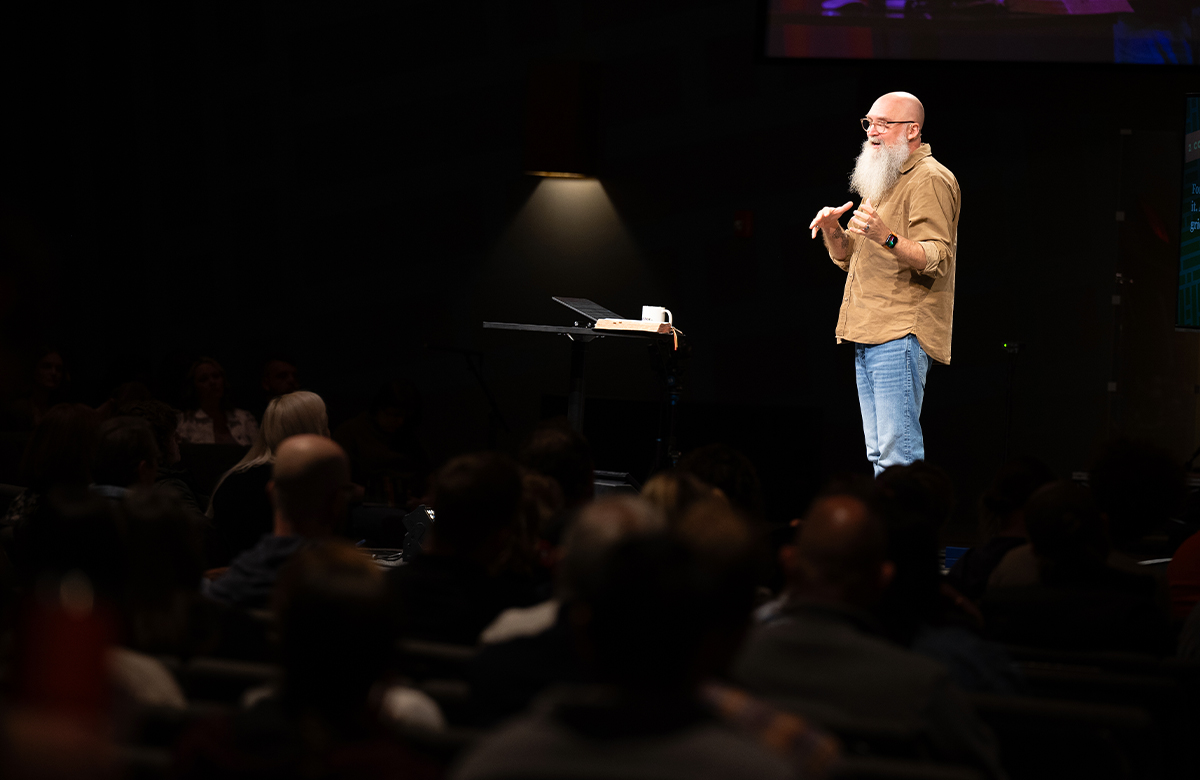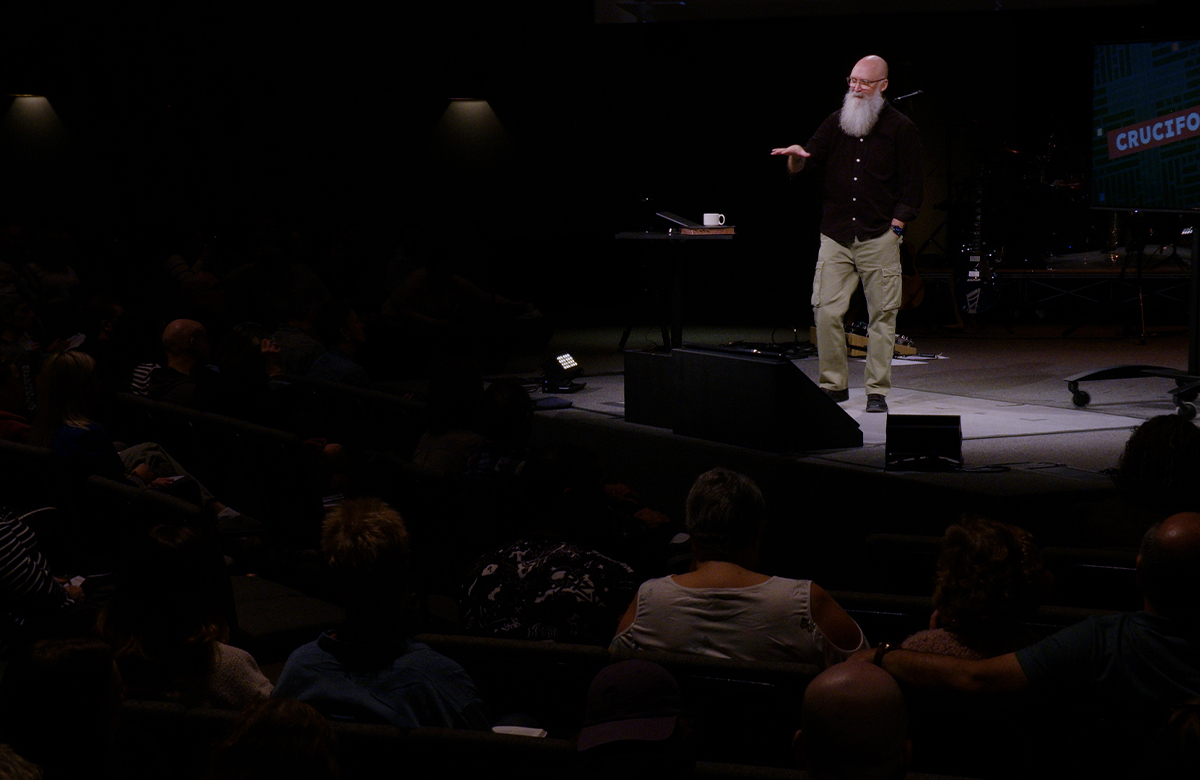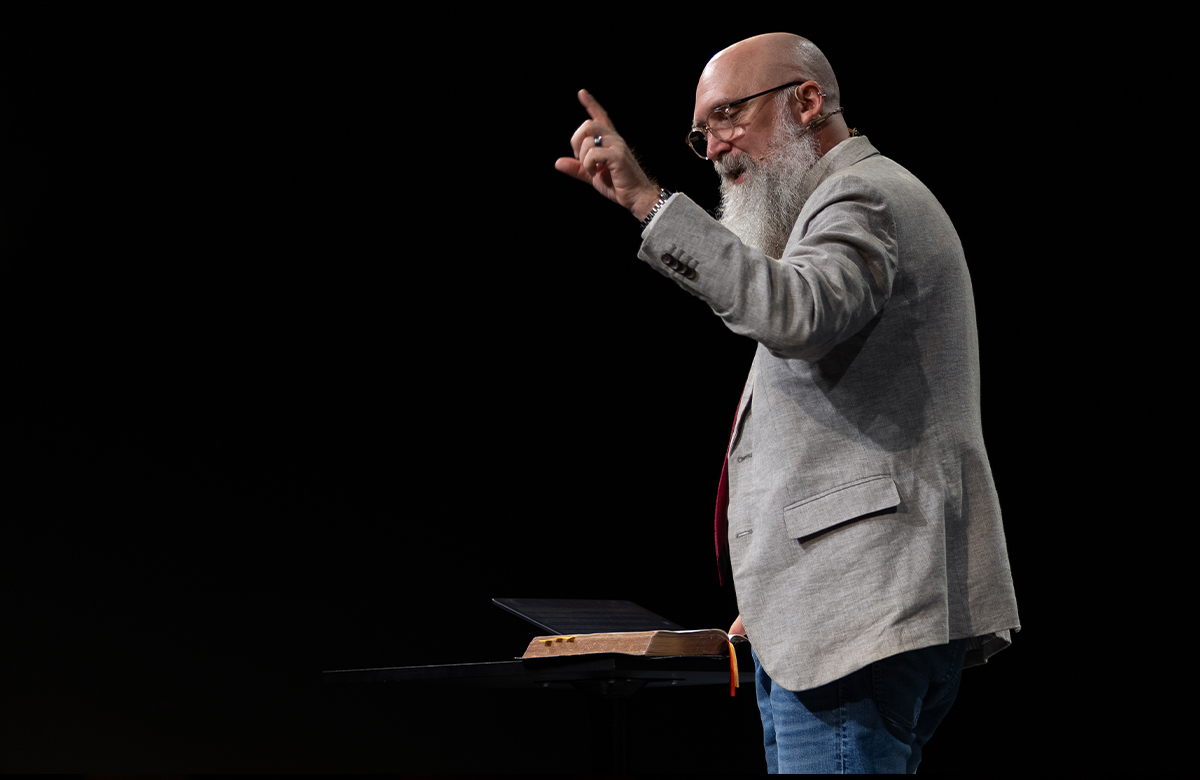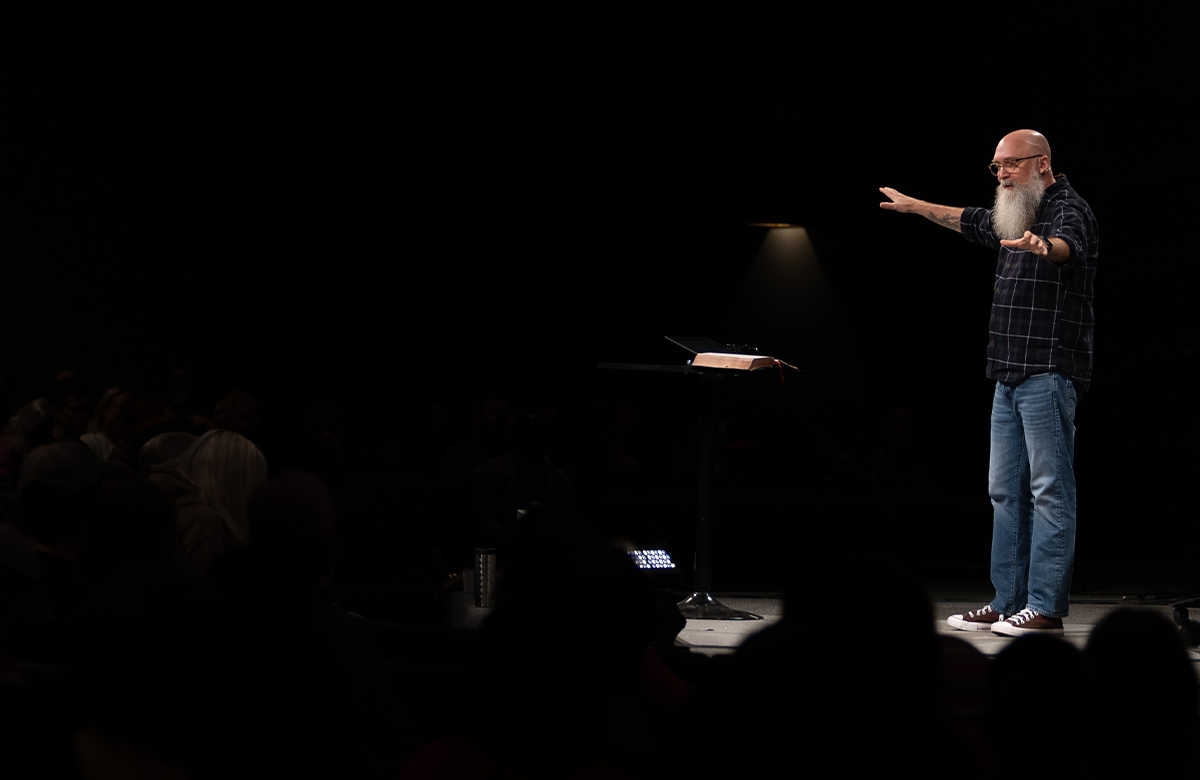02.12.23 | The Sticky Gospel
Who Are You
Noel Heikkinen
Mark 6:14-20
When you see Jesus clearly for who He is, it helps you see yourself for who you are. Pastor Noel Heikkinen walks us through Mark 6 as we go through the topic of identity as we continue on through our series The Sticky Gospel.
- Live Notes
Who You Are
Noel Heikkinen
King Herod heard about it, because Jesus’s name had become well known. Some said, “John the Baptist has been raised from the dead, and that’s why miraculous powers are at work in him.”
Mark 6:14
But others said, “He’s Elijah.” Still others said, “He’s a prophet, like one of the prophets from long ago.”
Mark 6:15
I am trying here to prevent anyone saying the really foolish thing that people often say about Him: I’m ready to accept Jesus as a great moral teacher, but I don’t accept his claim to be God. That is the one thing we must not say. A man who was merely a man and said the sort of things Jesus said would not be a great moral teacher. He would either be a lunatic—on the level with the man who says he is a poached egg—or else he would be the Devil of Hell. You must make your choice. Either this man was, and is, the Son of God, or else a madman or something worse. You can shut him up for a fool, you can spit at him and kill him as a demon or you can fall at his feet and call him Lord and God, but let us not come with any patronising nonsense about his being a great human teacher. He has not left that open to us. He did not intend to. . . . Now it seems to me obvious that He was neither a lunatic nor a fiend: and consequently, however strange or terrifying or unlikely it may seem, I have to accept the view that He was and is God. (Mere Christianity, 55-56)
When Herod heard of it, he said, “John, the one I beheaded, has been raised!”
Mark 6:16
This was John’s testimony when the Jews from Jerusalem sent priests and Levites to ask him, “Who are you?”
John 1:19
He didn’t deny it but confessed, “I am not the Messiah.”
John 1:20
“What then?” they asked him. “Are you Elijah?”
“I am not,” he said.
“Are you the Prophet?”
“No,” he answered.
“Who are you, then?” they asked. “We need to give an answer to those who sent us. What can you tell us about yourself?”
He said, “I am a voice of one crying out in the wilderness: Make straight the way of the Lord—just as Isaiah the prophet said.”
John 1:21–23
The next day John saw Jesus coming toward him and said, “Look, the Lamb of God, who takes away the sin of the world! This is the one I told you about: ‘After me comes a man who ranks ahead of me, because he existed before me.’ I didn’t know him, but I came baptizing with water so that he might be revealed to Israel.”
John 1:29–31
And John testified, “I saw the Spirit descending from heaven like a dove, and he rested on him. I didn’t know him, but he who sent me to baptize with water told me, ‘The one you see the Spirit descending and resting on—he is the one who baptizes with the Holy Spirit.’ I have seen and testified that this is the Son of God.” The next day, John was standing with two of his disciples. When he saw Jesus passing by, he said, “Look, the Lamb of God!”
John 1:32–36
The two disciples heard him say this and followed Jesus.
John 1:37
After this, Jesus and his disciples went to the Judean countryside, where he spent time with them and baptized. John also was baptizing in Aenon near Salim, because there was plenty of water there. People were coming and being baptized,
John 3:22–23
Then a dispute arose between John’s disciples and a Jew about purification. So they came to John and told him, “Rabbi, the one you testified about, and who was with you across the Jordan, is baptizing and everyone is going to him.” John responded, “No one can receive anything unless it has been given to him from heaven. You yourselves can testify that I said, ‘I am not the Messiah, but I’ve been sent ahead of him.’ He who has the bride is the groom. But the groom’s friend, who stands by and listens for him, rejoices greatly at the groom’s voice. So this joy of mine is complete. He must increase, but I must decrease.”
John 3:24–30
Now when John heard in prison what the Christ was doing, he sent a message through his disciples and asked him, “Are you the one who is to come, or should we expect someone else?” Jesus replied to them, “Go and report to John what you hear and see: The blind receive their sight, the lame walk,
those with leprosy are cleansed, the deaf hear, the dead are raised, and the poor are told the good news, and blessed is the one who isn’t offended by me.”
Matthew 11:2–6
For Herod himself had given orders to arrest John and to chain him in prison on account of Herodias, his brother Philip’s wife, because he had married her. John had been telling Herod, “It is not lawful for you to have your brother’s wife.” So Herodias held a grudge against him and wanted to kill him. But she could not, because Herod feared John and protected him, knowing he was a righteous and holy man. When Herod heard him he would be very perplexed, and yet he liked to listen to him.
An opportune time came on his birthday, when Herod gave a banquet for his nobles, military commanders, and the leading men of Galilee. When Herodias’s own daughter came in and danced, she pleased Herod and his guests. The king said to the girl, “Ask me whatever you want, and I’ll give it to you.” He promised her with an oath:
“Whatever you ask me I will give you, up to half my kingdom.”
She went out and said to her mother, “What should I ask for?”
“John the Baptist’s head,” she said.
At once she hurried to the king and said, “I want you to give me John the Baptist’s head on a platter immediately.” Although the king was deeply distressed, because of his oaths and the guests he did not want to refuse her. The king immediately sent for an executioner and commanded him to bring John’s head. So he went and beheaded him in prison, brought his head on a platter, and gave it to the girl. Then the girl gave it to her mother. When John’s disciples heard about it, they came and removed his corpse and placed it in a tomb.
Mark 6:17–29
As these men were leaving, Jesus began to speak to the crowds about John: “What did you go out into the wilderness to see? A reed swaying in the wind? What then did you go out to see? A man dressed in soft clothes? See, those who wear soft clothes are in royal palaces. What then did you go out to see? A prophet? Yes, I tell you, and more than a prophet. This is the one about whom it is written:
See, I am sending my messenger ahead of you;
he will prepare your way before you.
“Truly I tell you, among those born of women no one greater than John the Baptist has appeared, but the least in the kingdom of heaven is greater than he.
Matthew 11:7–11
- More From This Series
- More From This Speaker

























